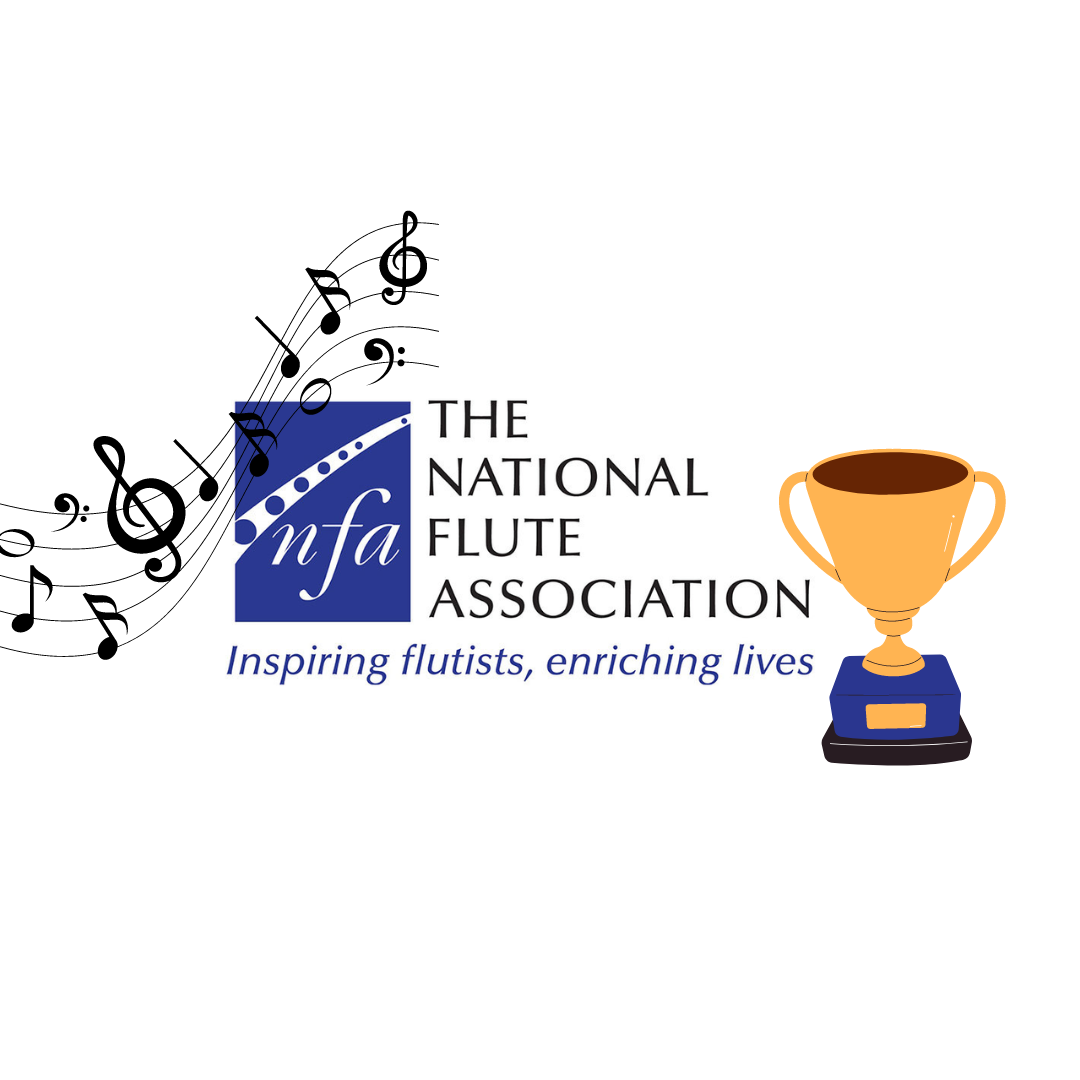It’s that time of year again and the results of the 2019 National Flute Association Newly Published Music Competition are in! Here is our annual run-down of the winning titles by category.
Flute Choir
Winners
Alexandra Molnar-Suhajda: Paths of Deeper Gold (Alry Publications)
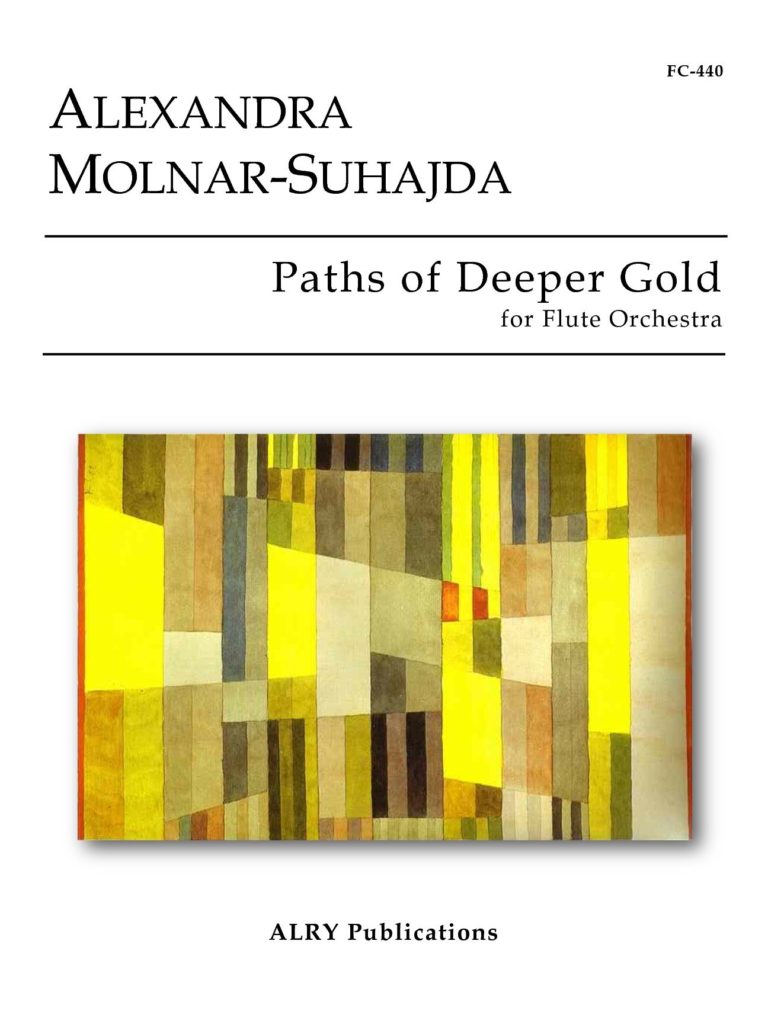
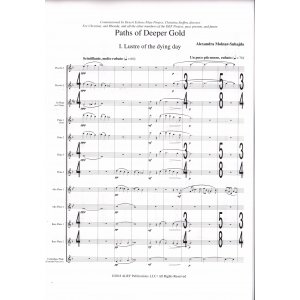
Editor’s Choice: Paths of Deeper Gold uses the large forces of a flute orchestra most effectively. Each of the three movements is atmospheric in character with the both the piccolos and low flutes used skilfully to add colour and texture. The metre of ‘Lustre of the dying day’ changes constantly, taking the listener into the uncertain world of dusk. ‘The moon is distant from the sea’ is simpler in structure, evoking the stillness of night. ‘Paths of Deeper Gold’, the longest of the three, is complex with an oriental twist. This is a really substantial work and although each movement could stand alone, performing it complete would make a great centre piece to any concert.
Ruben Flores: La Bruja Llorana (Alry Publications)
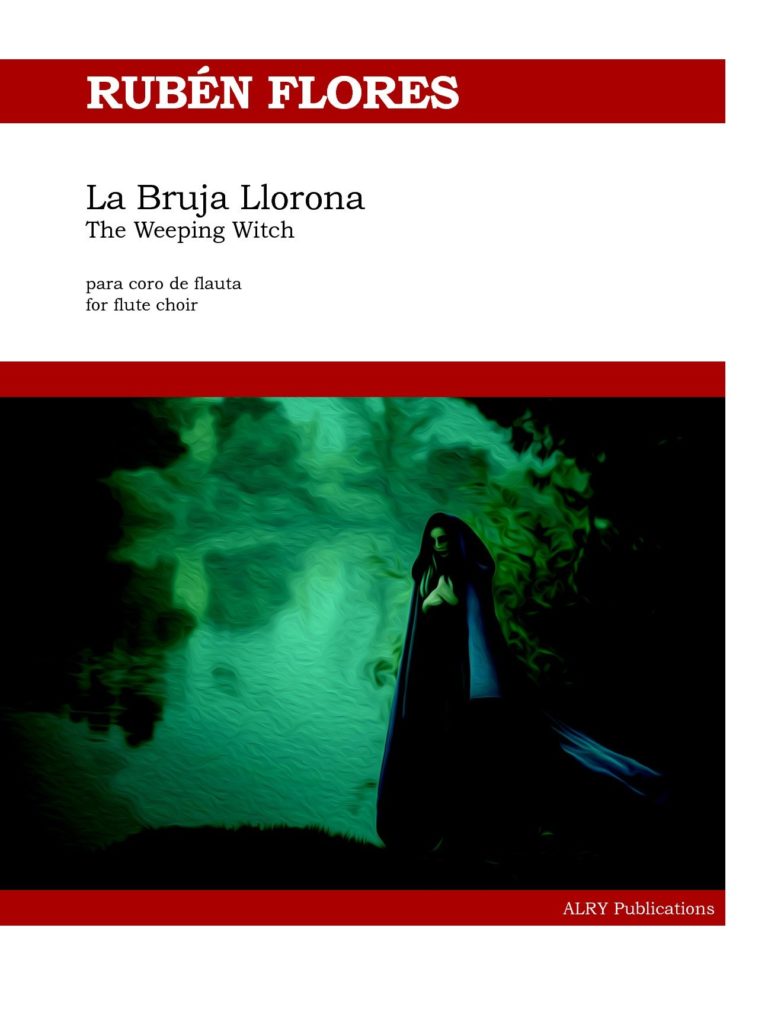
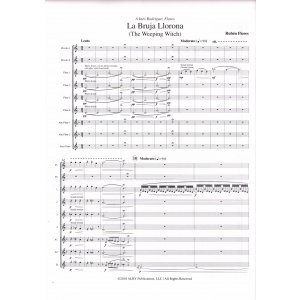
Editor’s Choice : La Bruja Llorana brings out all the colours of Mexico in a work that, despite the duel narratives of blood-sucking witches and ghosts that haunt cemeteries, is really fun to play! Starting slowly, the rhythms of these two traditional songs are interwoven and become more frenzied as the speeds increase. Played well, this would make a great concert finale.
Martha Stoddard: Seaside Suite (Tetractys Publishing)
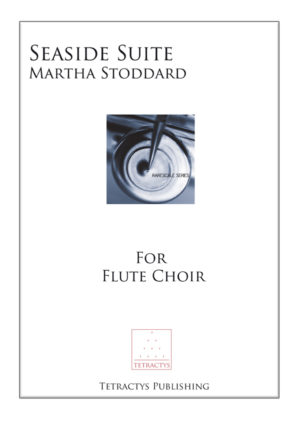
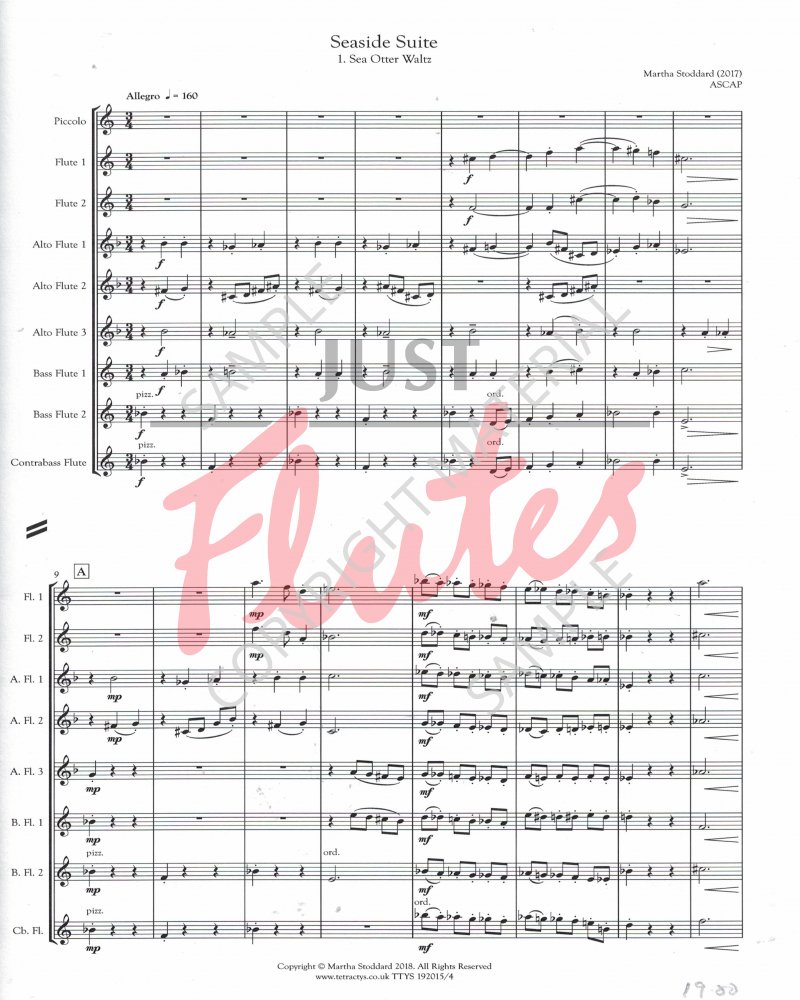
Publisher’s Note: A charming American piece in 3 movements suitable for amateur flute choirs.
Finalists
Till MacIvor Meyn: Nordic Spirits (Alry Publications)
Gary Schocker: Flute Flower (Alry Publications)
Sharon Maloney: Soirees Musicales (Forton Music)
Liz Sharma: Watching Light (Forton Music)
Timothy Hagan: Big and Bright (Owl Glass Music)
Alexandra Luigini arranged by Eileen Walpool: Ballet Egyptian (SilverWinds Publishing)
Honorable Mention
Roger Cichy, arranged by Katherine Borst Jones: Musings (Alry Publications)
Roger Cichy, arranged by Katherine Borst Jones: Flute-da-Toot (Alry Publications)
Camille Saint-Saëns, arranged by Carla Rees: Danse Macabre (Tetractys Publishing)
George Frideric Handel, arranged by Carla Rees: Concerto Grosso, Op 6 No 1 (Tetractys Publishing)
Hugo Alfven, arranged by Matt Johnson: Herdsmaiden’s Dance (Alry Publications)
Pyotr Ilyich Tchaikovsky, arranged by M. Orriss: Waltz of the Flowers (Wonderful Winds)
Flute & Piano – Original Works
Winners
Carter Pann: Giantess (Theodore Presser Company)
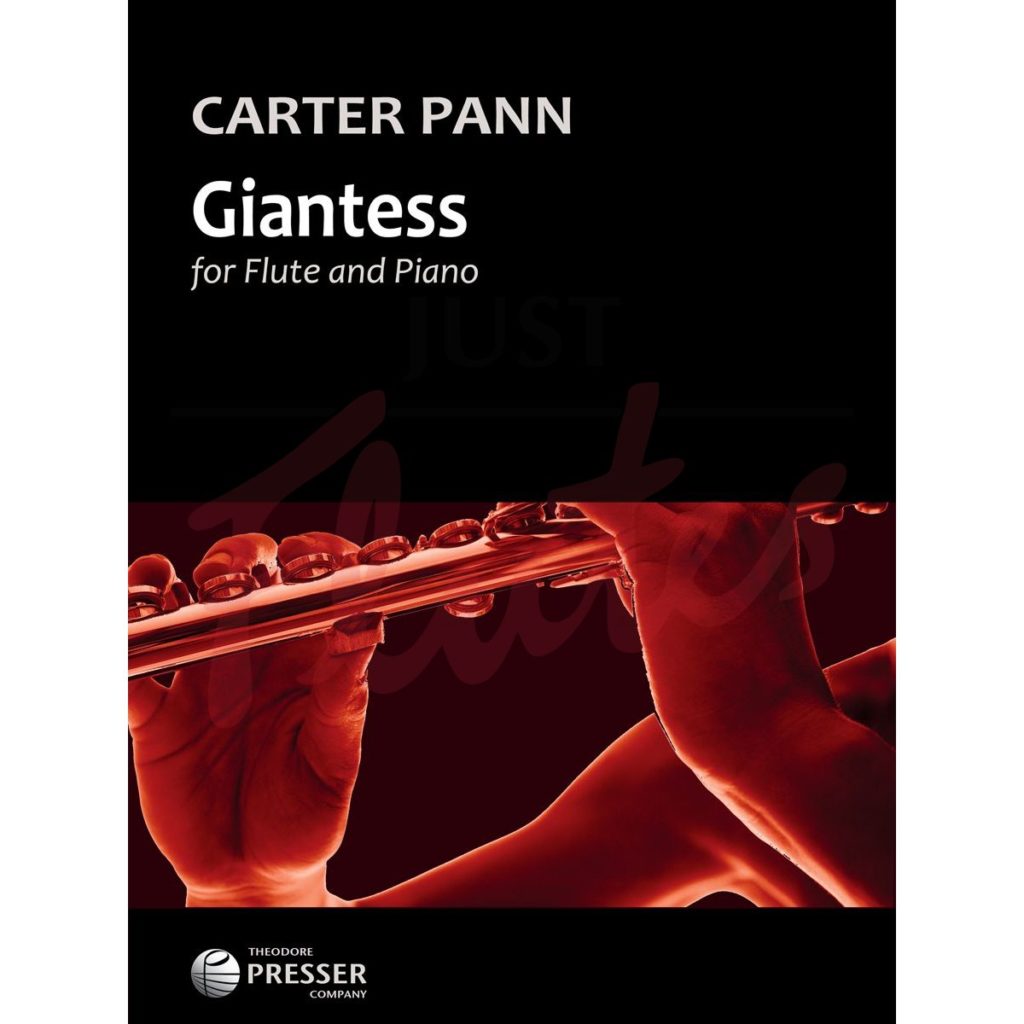
Publisher’s Note: Giantess was commissioned by the Flute New Music Consortium for simultaneous “copremieres” by many consortium members in early March 2018. The composer has written, “The flute presents a far-reaching melody that seemingly never ends and explores the entire range of the instrument at all times. It is this quality of the melodic line that inspired the title of the work… the image of a larger-than-life gigantic performer who has the ability to make the flute expand in range, timbre, and volume, breaking the bounds well beyond its humble size. The phantasmagoric 9-minute work is cast in one rhapsodic movement.
Daniel Dorff: Concertino (Theodore Presser Company)
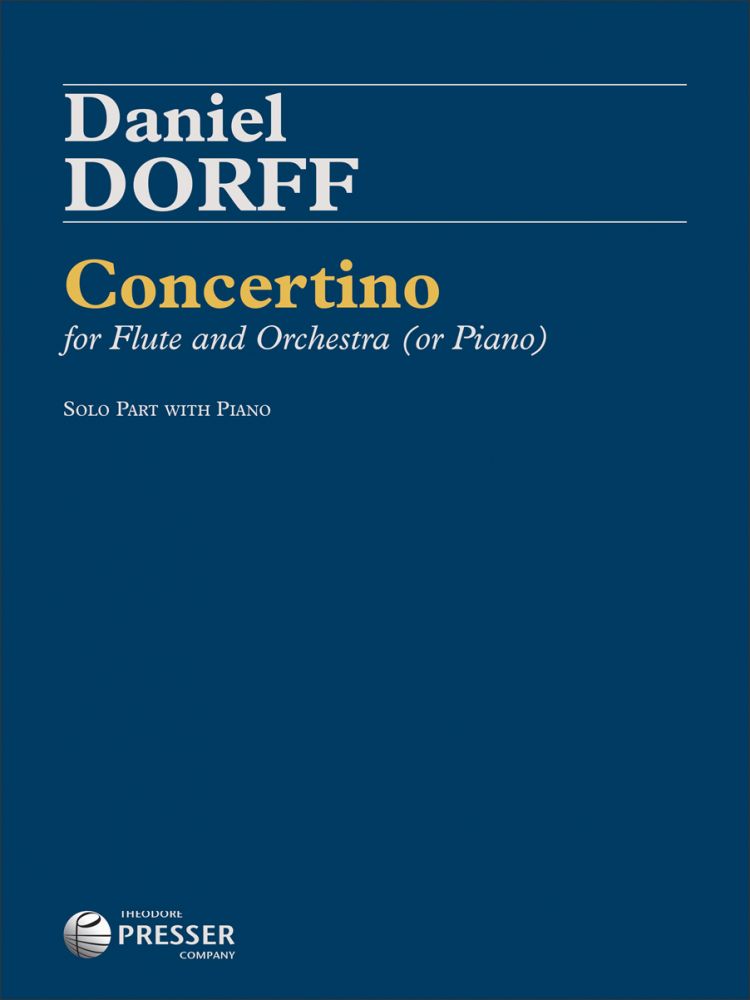
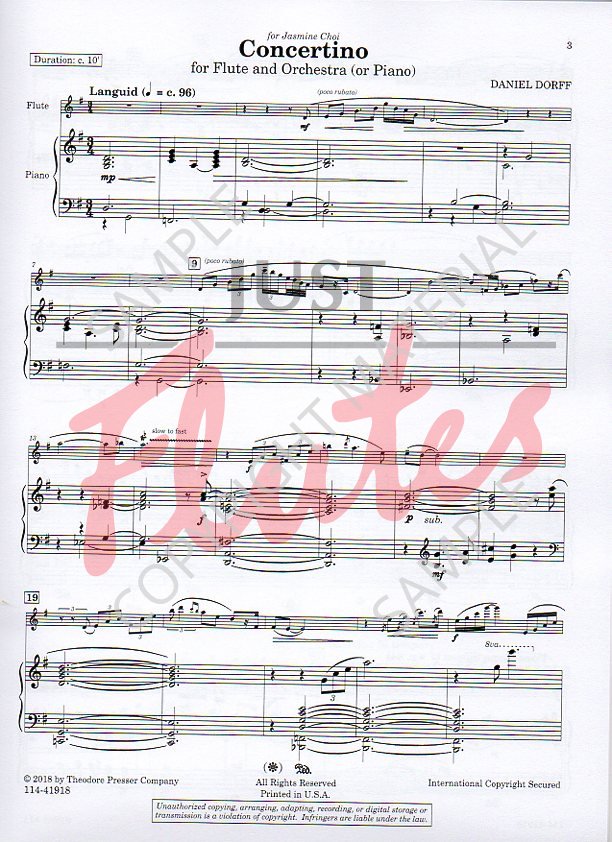
Publisher’s Note: Composed for Jasmine Choi’s premiere on the 2018 National Flute Association concerto gala, Dorff’s Concertino is a 10-minute showpiece full of flash and theatricality, elegantly balanced with beauty and lyricism. The work is fully suitable for flute and piano recitals, while the orchestral version is easy to program, even when rehearsal time is limited. For advanced flutists.
Finalists
Amanda Harberg: Court Dances (Theodore Presser Company)
Valerie Colman: Fanmi Imèn (Theodore Presser Company)
Philippe Gaubert edited by Amy Porter: Treasures (Carl Fischer)
Honorable Mentions
Carter Pann: Double Espresso (Theodore Presser Company)
Eldin Burton: Concerto (Theodore Presser Company)
Tilmann Dehnhard: A String of Thoughts (Universal Edition)
Yolande Uyttenhove: Sonate (Edition Maurer)
Flute & Piano – Arrangements & Transcriptions
Winners
Antonín Dvořák arranged by Robert Stallman: American Suite in A Major, Op. 98 (Carl Fischer)
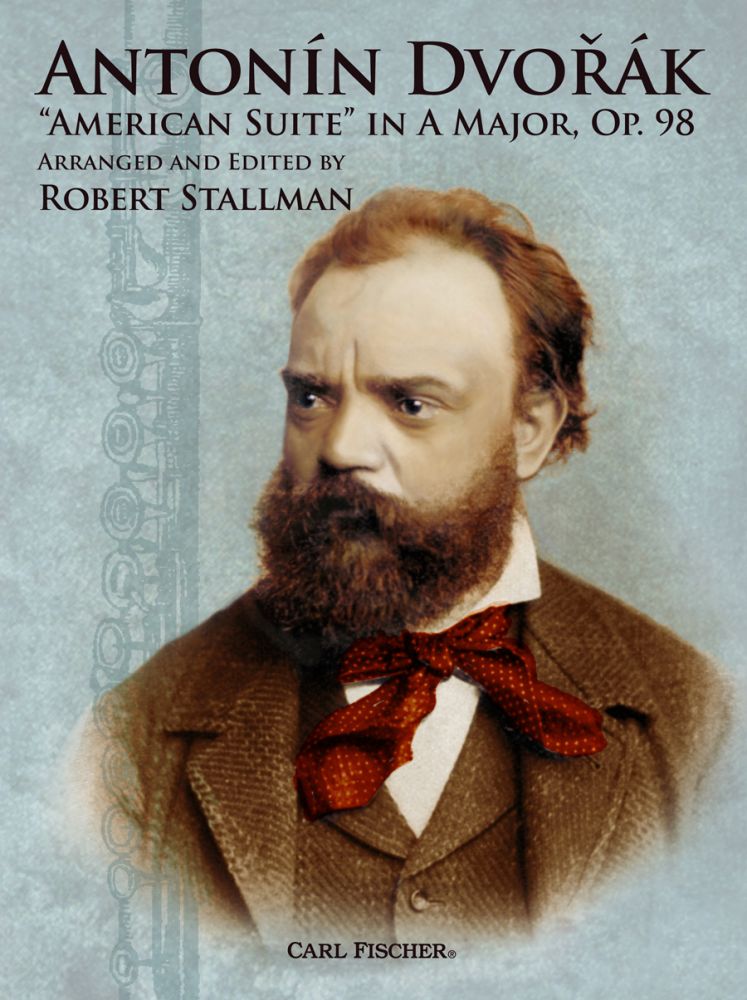
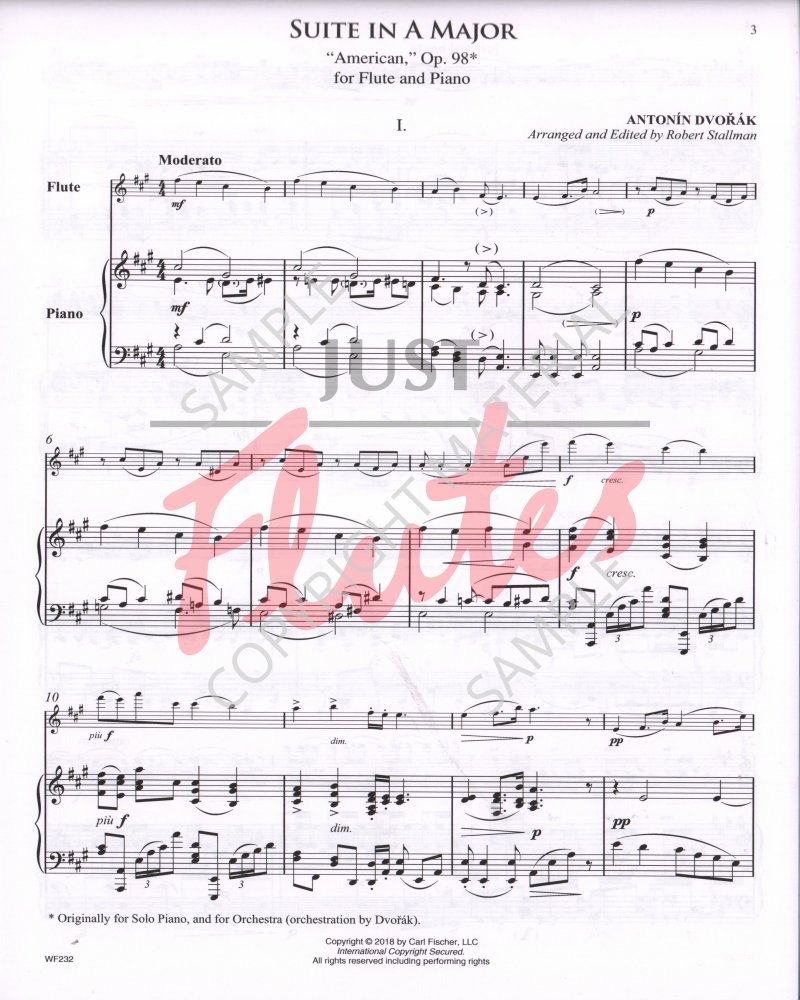
Publisher’s Note: Conceived originally as a work for solo piano, this arrangement of Dvorak’s Suite in A major for flute and piano is based on both the piano and orchestral versions. It is one of Stallman’s ‘new’ works for flute.
Various Composers arranged by Nancy Andrew: The Paris Conservatory Flute Album (Southern Music)
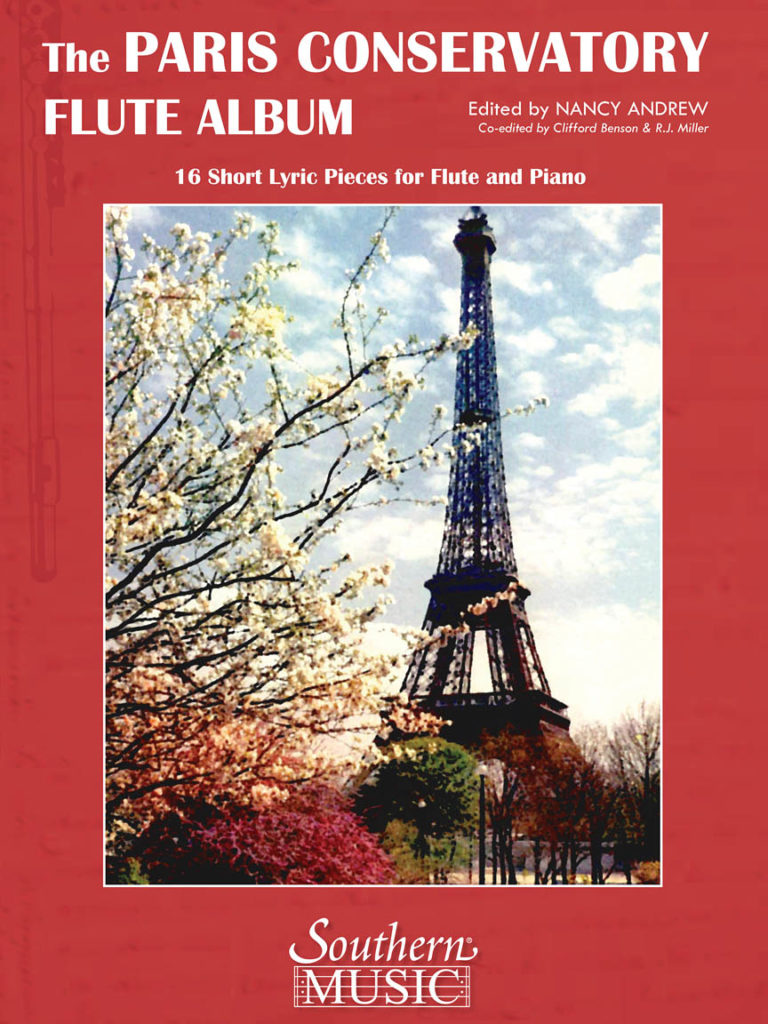
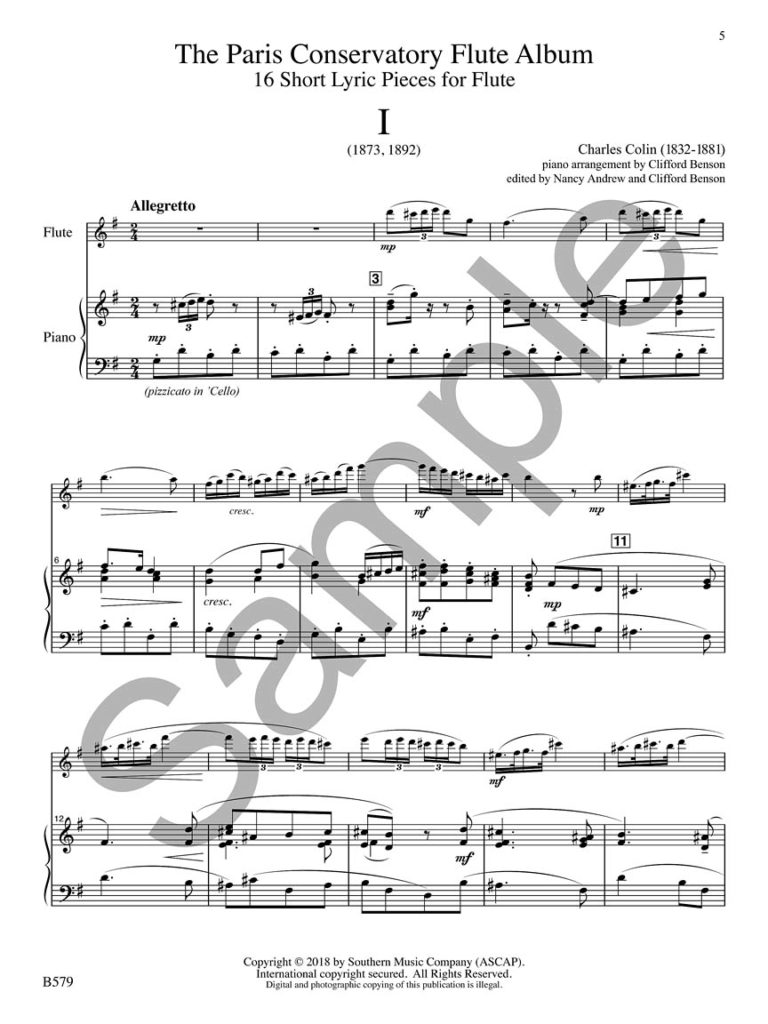
Editor’s Choice: This collection of 16 sightreading test pieces set for the prestigious Prix de Concours at the Paris Conservatoire is full of delights. None of the these composers was a flute player but each work is beautifully written to showcase the expressive qualities of the instrument with great insight and flair. This is such a lovely book which really enriches the flute repertoire – a must for all flute players!
Finalists
Robert Schumann arranged by Mark Sparks: Fantasiestücke (Theodore Presser Company)
Honorable Mentions
Claude Debussy arranged by Emily Beynon: Prélude à l’après-midi d’un faune (Scherzo Editions)
Various Composers arranged by James Rae: You Must Remember This… (Universal Edition)
Flute Duets
Winners
Georg Philipp Teleman arranged by Sharon Sparrow and Jeffrey Zook: Telemann for Two (Theodore Presser Company)
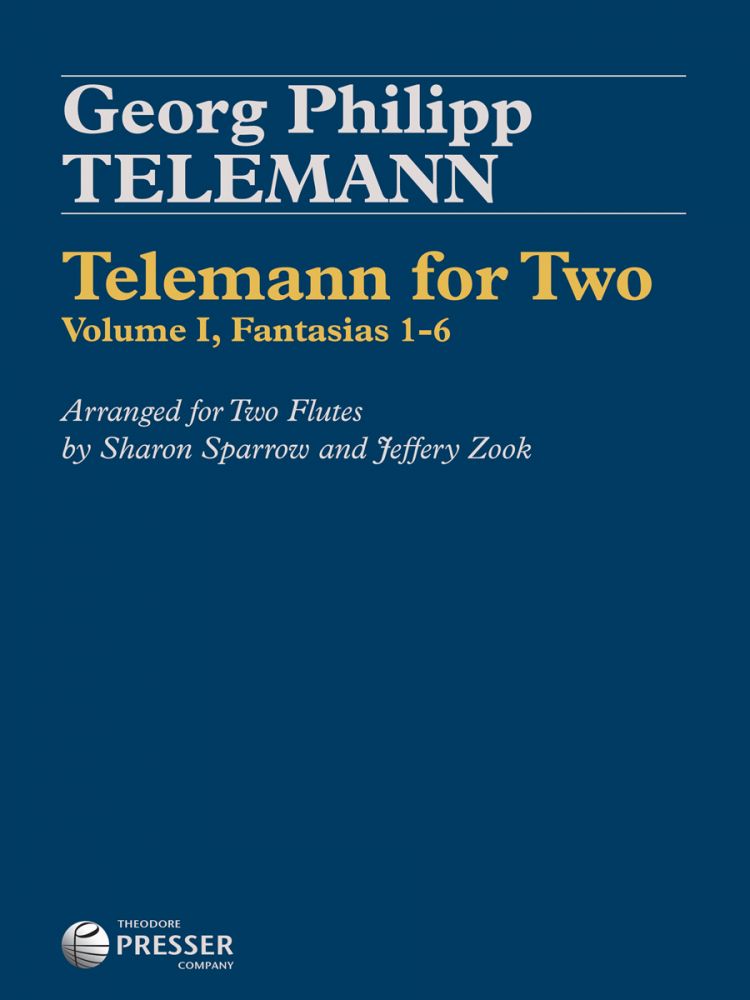
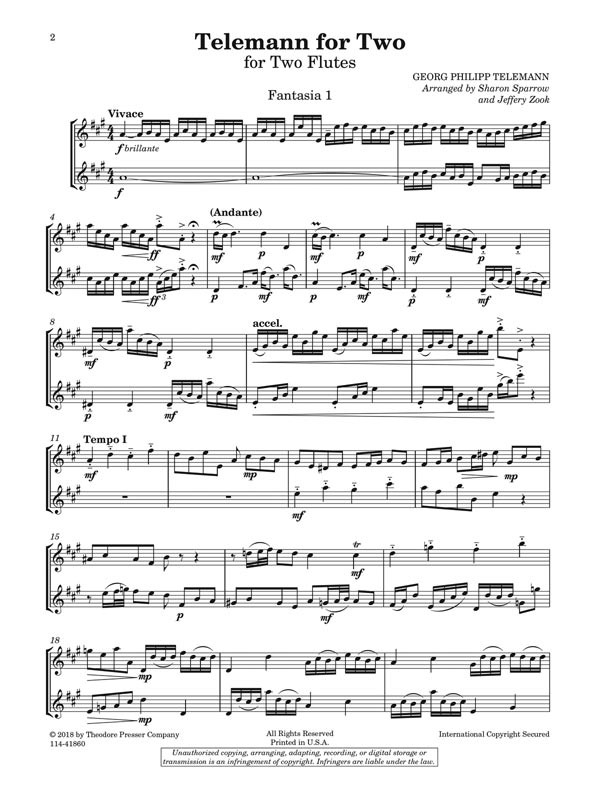
Editor’s Choice: The idea to add another flute part to these Telemann Fantaisias is not new, but this is a really authentic adaptation. The sharing out of the original melodic line between the two parts certainly helps learn the harmonic structure which will be very useful knowledge when going back to the solo version. You can also learn about counterpoint in a hands-on way that is very valuable. That’s before you get to the fact that they’re all great to play! Just excellent all round!
Traditional arranged by Michael Losch: Klezmer: Flute Duets (Universal Edition)
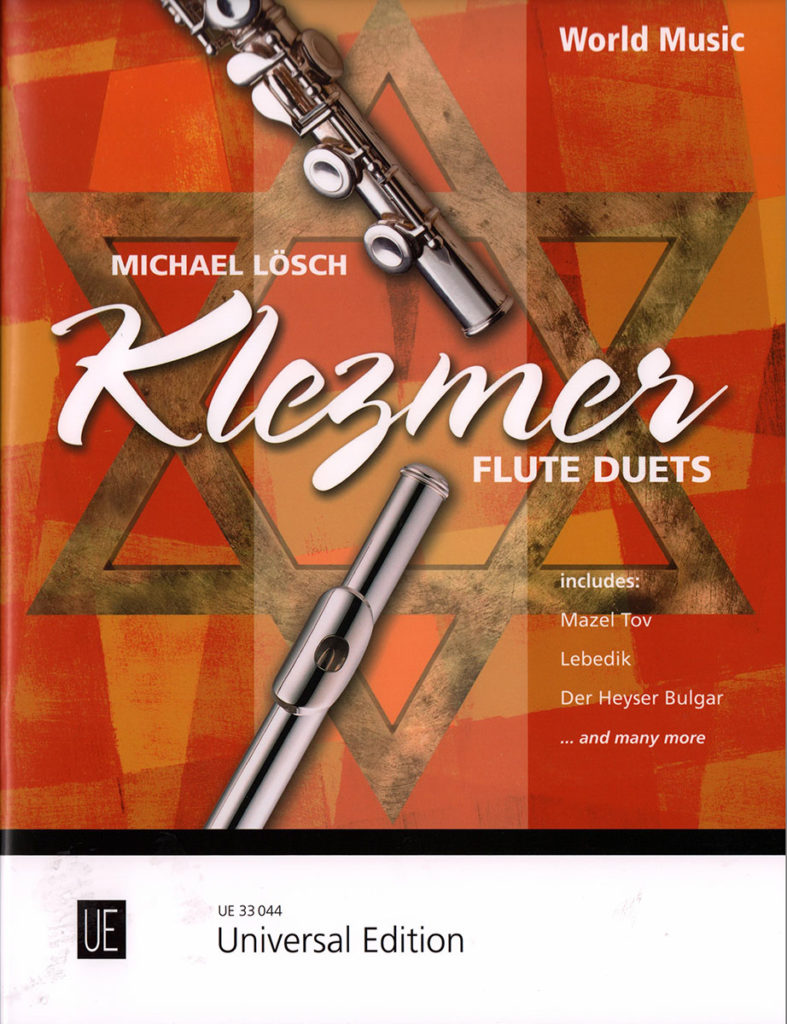
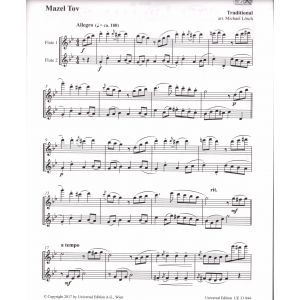
Publisher’s Note: Klezmer music is a continually evolving style yet with firm traditional roots in the past. It is full of catchy tunes while allowing for a wide range of interpretations that cannot always be written down in all their subtleties. In “Klezmer Flute Duets”, Michael Lösch has made arrangements, for two flutes, of his personal selection from this huge repertoire of traditional pieces and added five of his own compositions inspired by this evocative music.
Finalist
Pascal Proust: Prélu-duo et danse (Gérard Billaudot)
Honorable Mentions
Liz Sharma: Dance for Two Flutes (Forton Music)
Laurence Dresner: Bailar A Una Memoria Olvidada (Alry Publications)
Gary Schocker: One-sided Conversations (Falls House Press)
Flute Methods
Winners
Henrik Wiese: The Flute Audition Book: The New Essential Companion (Universal Edition)
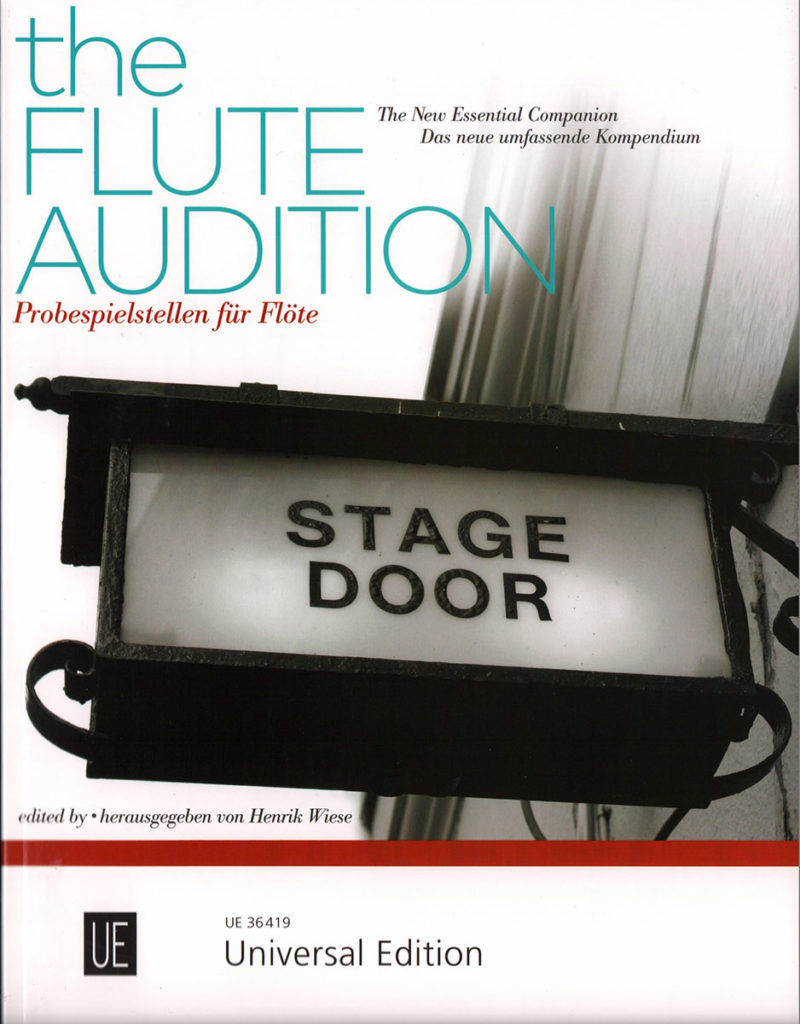
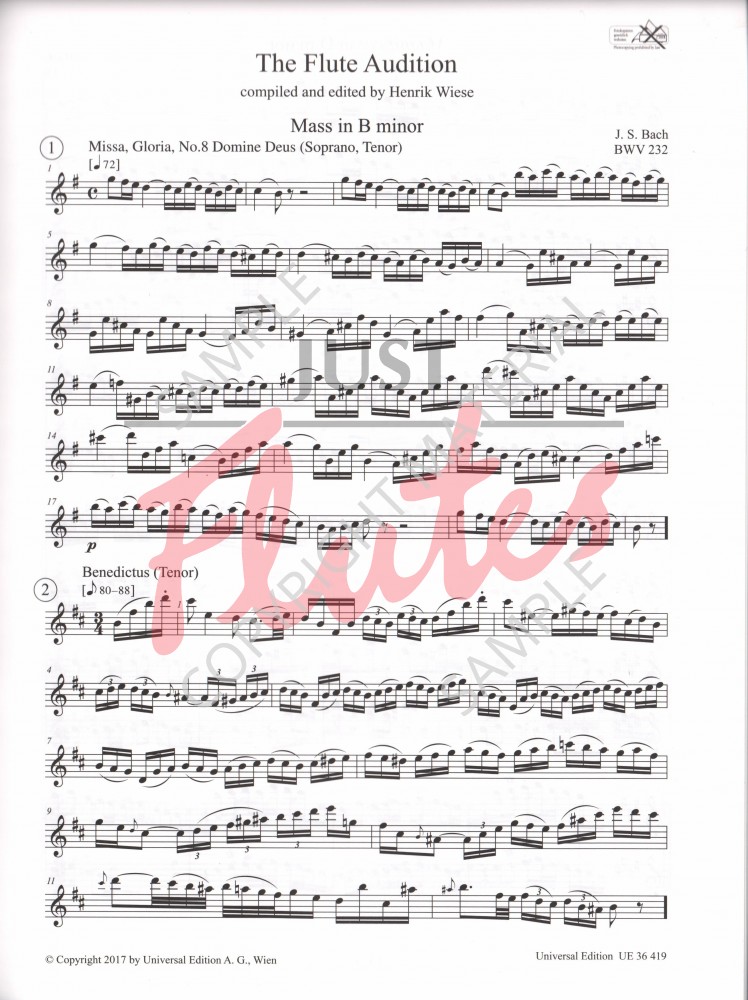
Publisher’s Note: Henrik Wiese, the internationally renowned orchestral and solo flautist, has spent four years composing the final book. He was working with his own students in Salzburg as they engaged in auditions, as well as with other professional players and his teaching colleagues at the conservatory. He sourced repertoire lists from job advertisements past and present to other auditing lists. Considerable research has also been made in the differences between existing editions of the well-known pieces, surprisingly, from twentieth century composers such as Prokofiev and Stravinsky. “The Flute Audition” then looks at practical matters as well as turns and metronome markings. He comments, for example, that Hindemith’s own recording takes a passage from “Symphonic Metamorphoses” markedly slower than in the score. The result of this painstaking research is the most comprehensive collection of international audition pieces published in a single volume.
Robert Stallman: The Flutist’s Handbook (Carl Fischer)
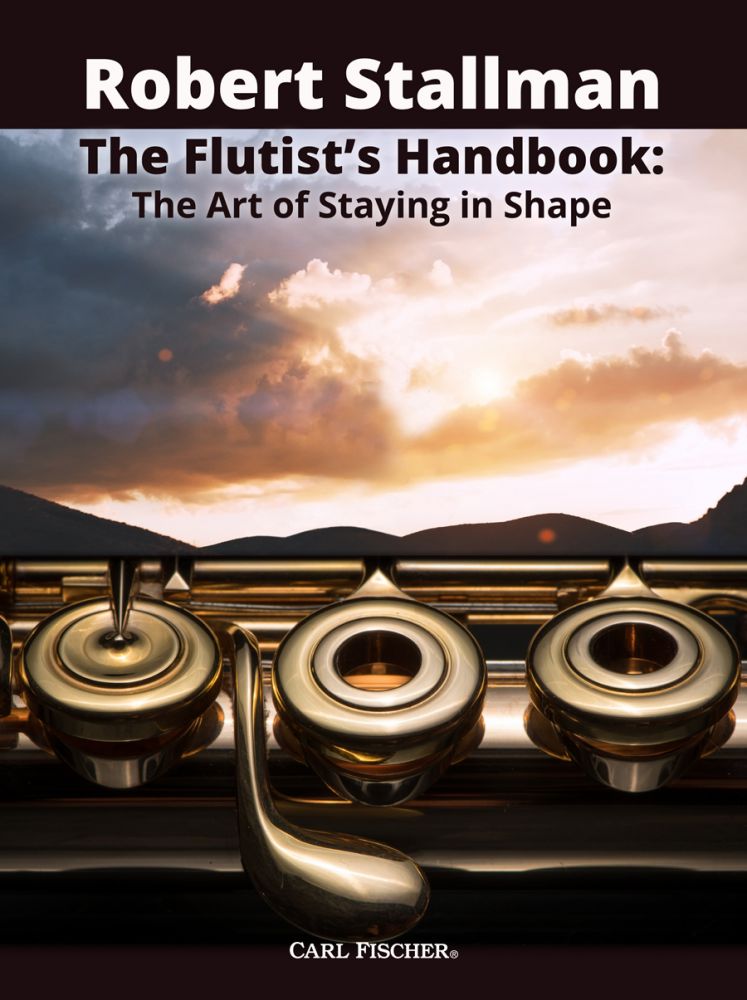
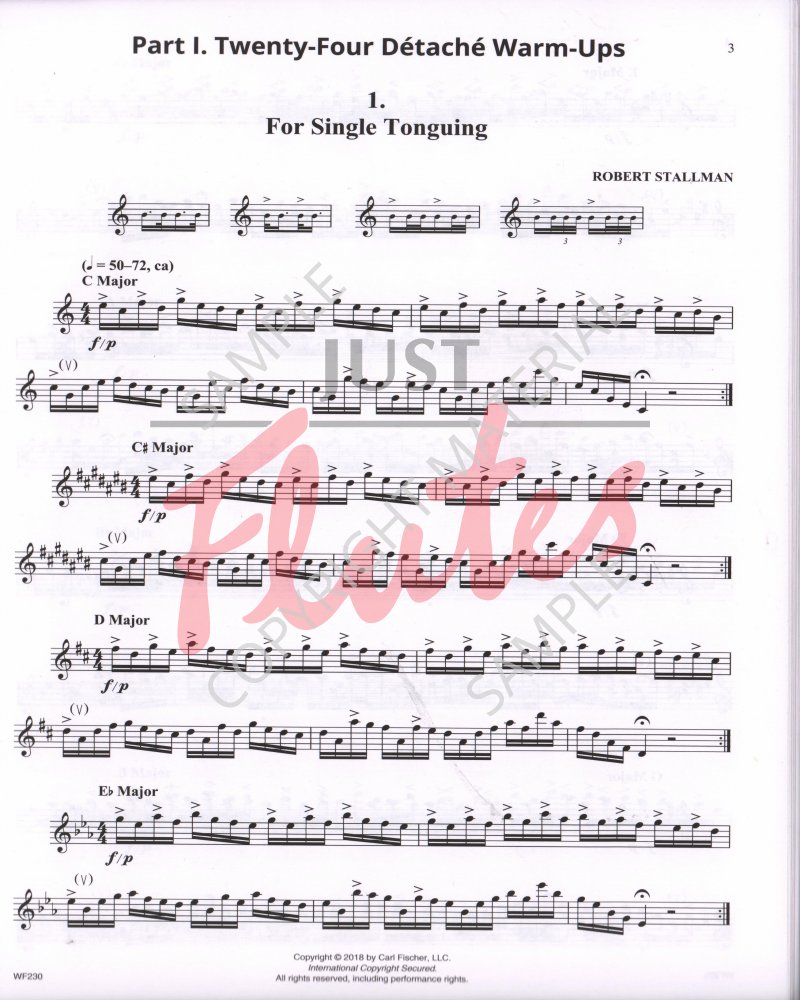
Publisher’s Note: This book is meant for professionals, students and amateur flutists alike. I offer it to all as a companion that invites more pleasure and vitalilty into our daily practice. It is my firm belief that by aligning ourselves with our love of music and it’s energizing patterns each day – from the very first moment we pick up the instrument – we will bring more ease and focus into our lifelong task of staying in shape. This in turn will support the heightened inspiration we want to take into rehearsals and performances. Enjoy!
Honorable Mention
Gary Schocker: Extreme Sports (Theodore Presser Company)
Mixed Trio
Winners
Nicole Chamberlain: The Blue Plate for Flute, French Horn, and Piano (Spotted Rocket)
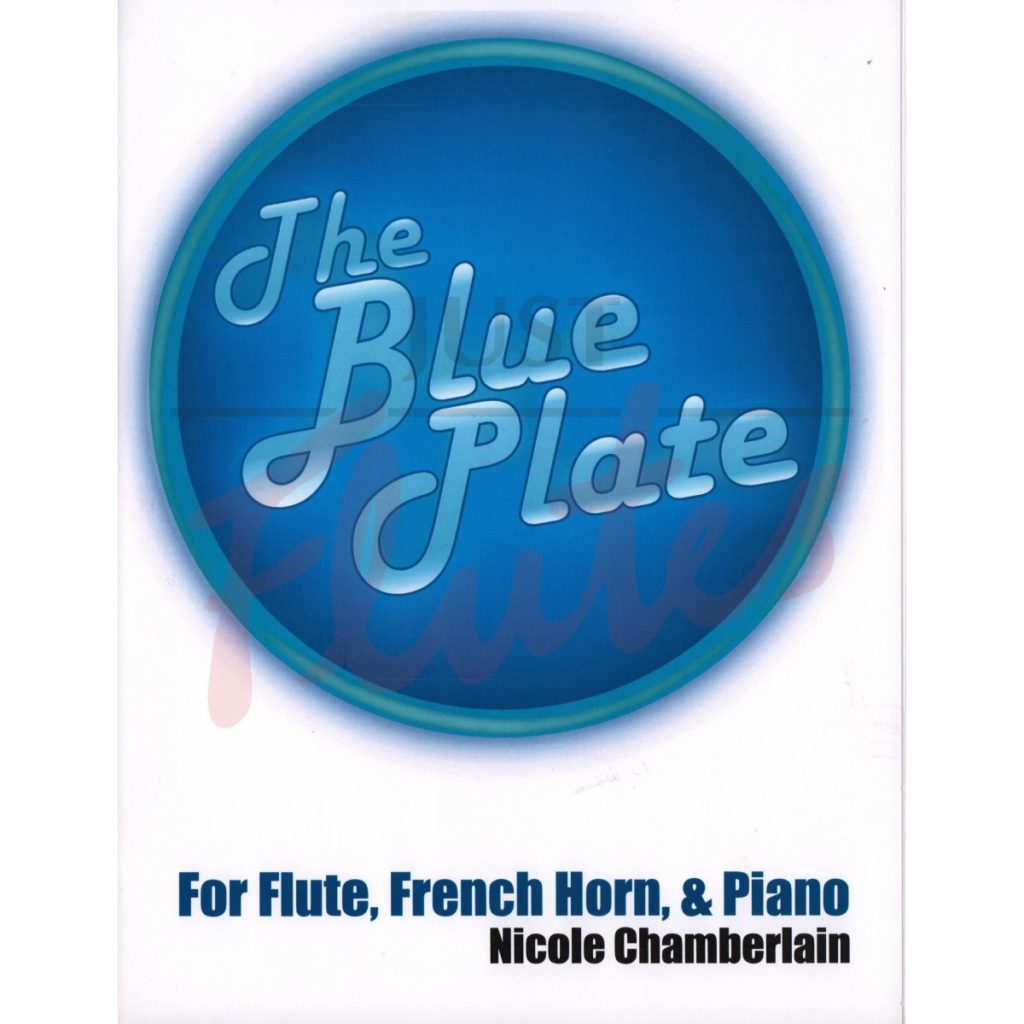
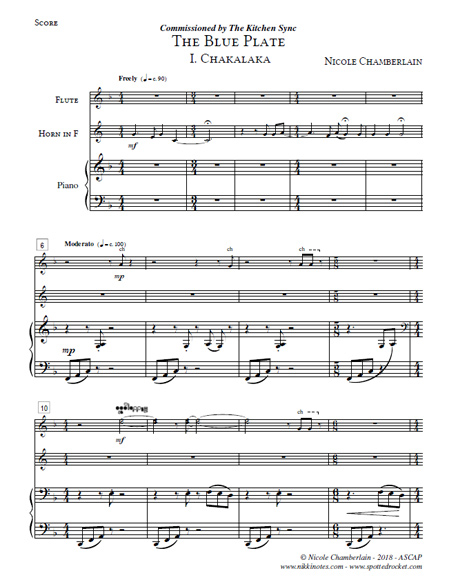
Publisher’s Note: The Blue Plate was commissioned by the flute, horn, and piano ensemble The Kitchen Sync. The ensemble consists of Dr. Katherine Emeneth, Dr. Catherine Kilroe-Smith, and Dr. Akiko Iguchi. Each member of the ensemble is from a different country, and requested the music reflect their heritage. The first movement, Chakalaka, represents Dr. Catherine Kilroe-Smith’s home country of South Africa. Sata Andagi, is from Dr. Akiko Iguchi’s homeland of Japan. In the final movement, Grits, not only is Dr. Katherine Emeneth’s American roots are represented, but it ties together all three members and the composer’s ties with Athens, Georgia.
Victor Herbert arranged by Matt Johnson: L’Encore for Flute, Clarinet, and Piano (Alry Publications)
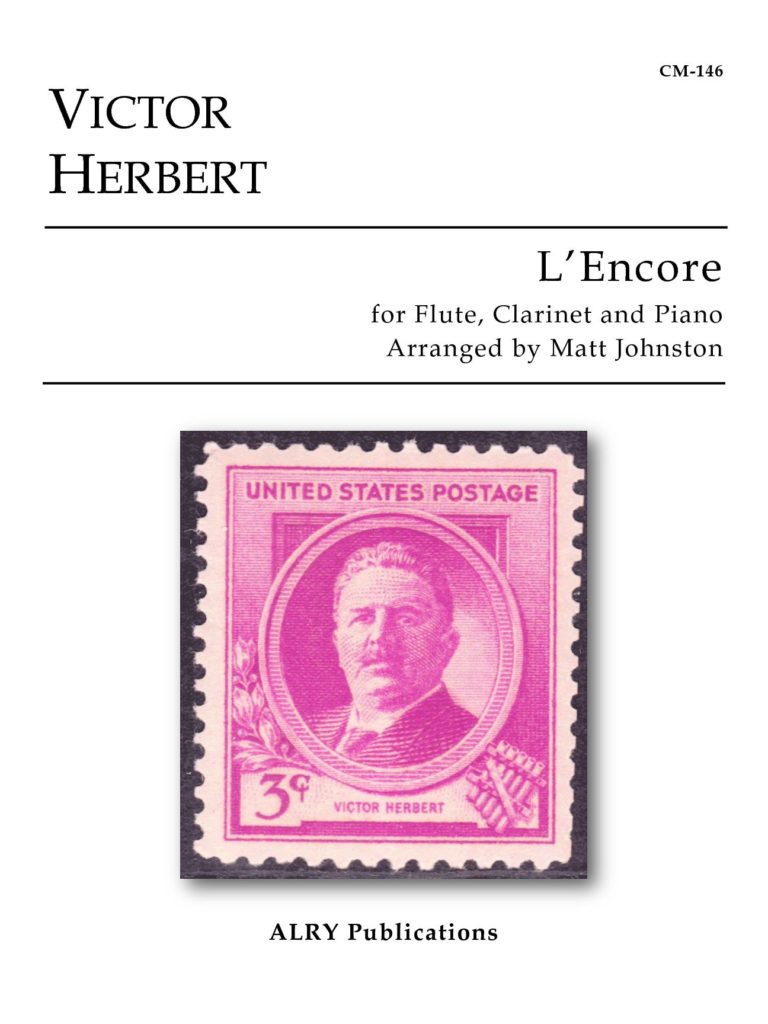
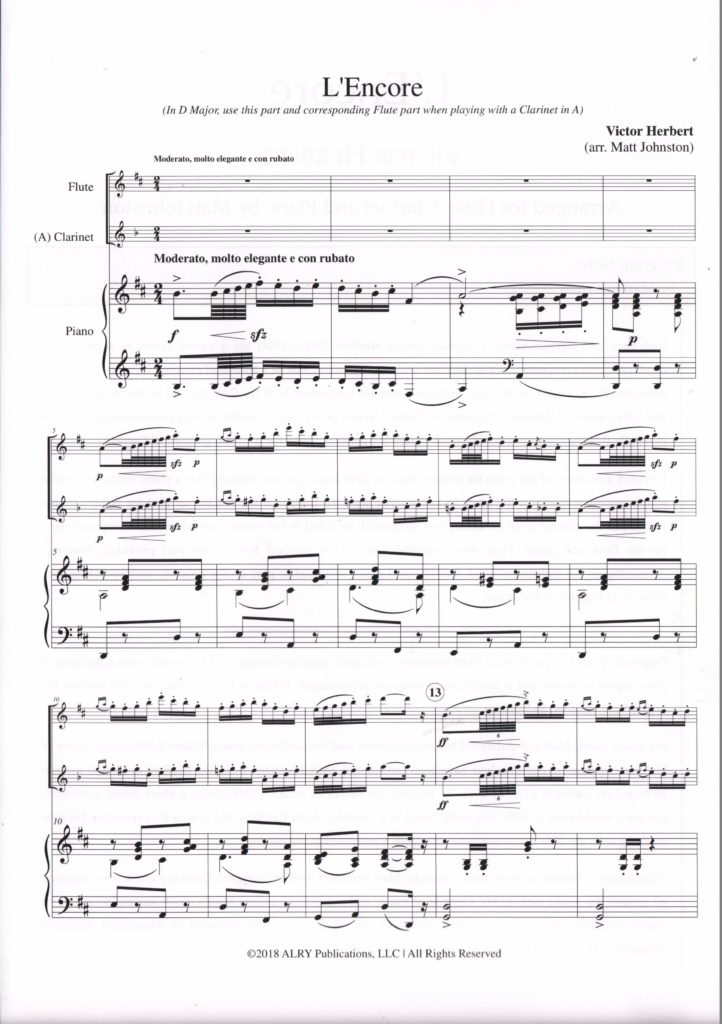
Publisher’s Note: “L’Encore” is a short vignette originally composed for Flute, Clarinet (in A) and orchestra accompaniment. For this edition with piano reduction, to transpose the A Clarinet part for B-flat Clarinet would put the clarinet in an awkward key, so instead, included in the volume are additional transposed parts for the flute and piano. Thus, the clarinetist will always play off the clarinet part provided, however, depending on the instrument used, the flute and piano will need to play on the properly corresponding part, either in D Major or E-flat Major.
Finalists
Carter Pann: Melodies for Robert for Flute, Cello, and Piano (Theodore Presser Company)
Richard White: Four Myths for Flute, Viola, and Harp (Whitco Press)
Sinae Kim: Five Variations on a Korean Hymn Tune for Flute, Clarinet, and Piano (Alry Publications)
Carmela Mackenna: Serenade for Flute, Violin, and Viola (Cayambis Music Press)
Honorable Mentions
Liz Sharma: Songs of the Night for Flute, Violin, and Piano (Forton Music)
Martin Rokeach: Going Up? for Flute, Viola, and Cello (Alry Publications)
Robert Russell Bennett,edited by Janet Schlein Somers and Paul Mack Somers: Seven Postcards to Old Friends for Flute, Viola, and Piano (Maurice River Press)
Mixed Duets (Flute & Other Instrument)
Winners
Richard White: An Emily Dickinson Suite for Flute and Harp (Whitco Press)
Louis Anthony deLise: Salone del Astor for Flute and Vibraphone (Alry Publications)
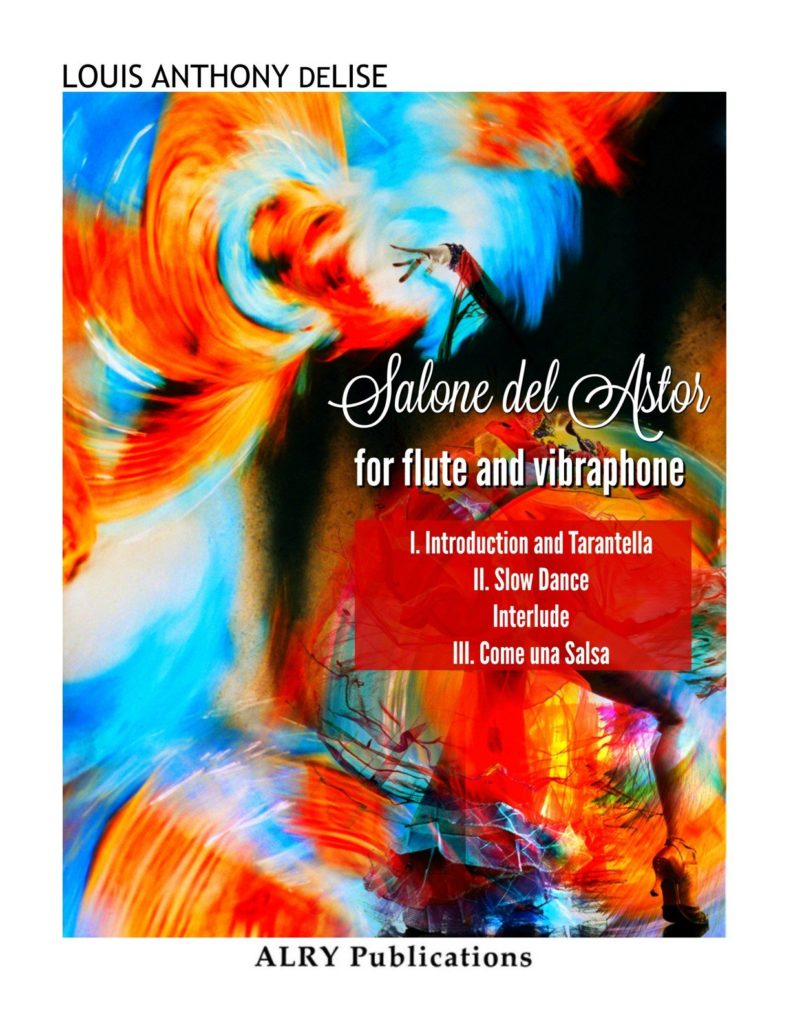
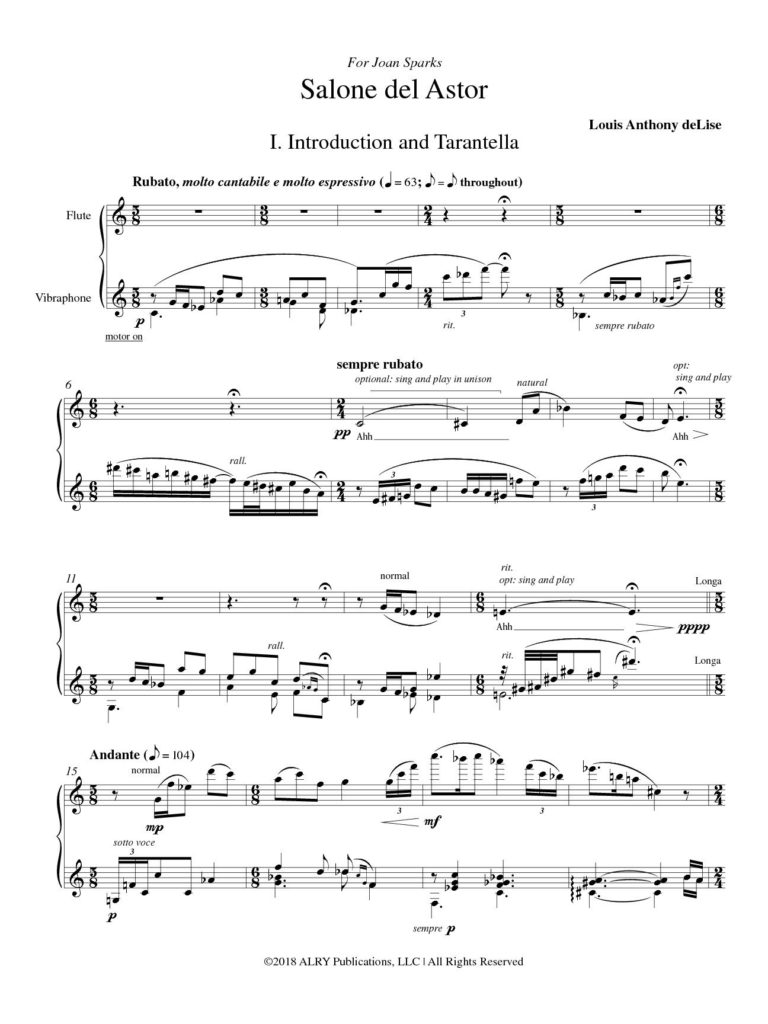
Publisher’s Note: Louis deLise’s Salone del Astor for Flute and Vibraphone was written for flutist Joan Sparks and premiered at the 2018 National Flute Association convention in Orlando, Florida. The movements of Salone are marked, “Introduction and Tarantella,” “Slow Dance,” and “Come una salsa.” Rhythms of the tarantella and the salsa are utilized in the outer movements and develop the melodies and harmonies using elements borrowed from popular American music, quartal or quintal harmonies, and octatonic and Lydian scalar collections. The middle movement also uses the Lydian scalar collection, especially featuring the collection’s key feature, the interval of the augmented fourth, by contrasting it with the interval of the perfect fourth.
Honorable Mention
Gary Schocker: Angelsong for Flute and Harp (Alry Publications)
Mixed Ensembles
Winners
Melinda Wagner: Unsung Chordata for Flute, B-flat Clarinet, Violin, Cello, Percussion, and Piano (Theodore Presser Company)
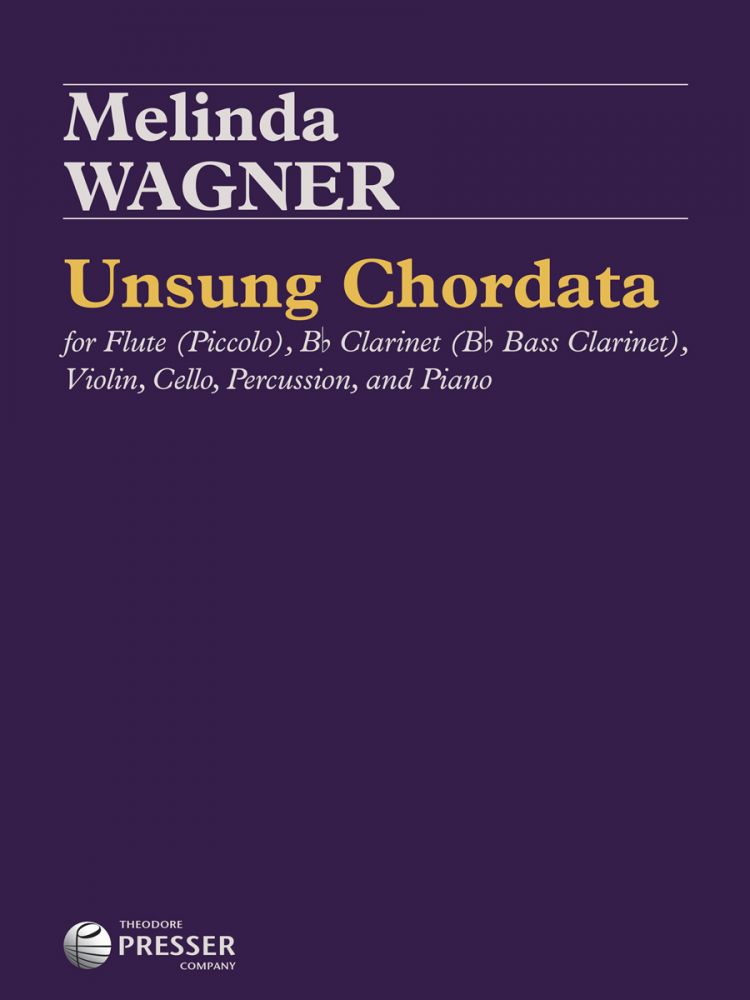
Publisher’s Note: Composing for Boston Music Viva on a Fromm Foundation grant, Melinda Wagner drew inspiration from an astounding video of an industrious little pufferfish and his sand artistry. Working 24 hours a day, he carves out a beautiful medallion of swirls and ridges, in the hope of attracting a sweetheart. Wagner has written, “I was so moved by the careful preparation, determination, patience, and artistry of this little fish, who has no guarantees of finding true love. The phenomenon reminded me very much of the act of composing – of creating something out of nothing, with few guarantees.
Gary Schocker: Airspace for Flute, Oboe, B-flat Clarinet, and Piano (Theodore Presser Company)
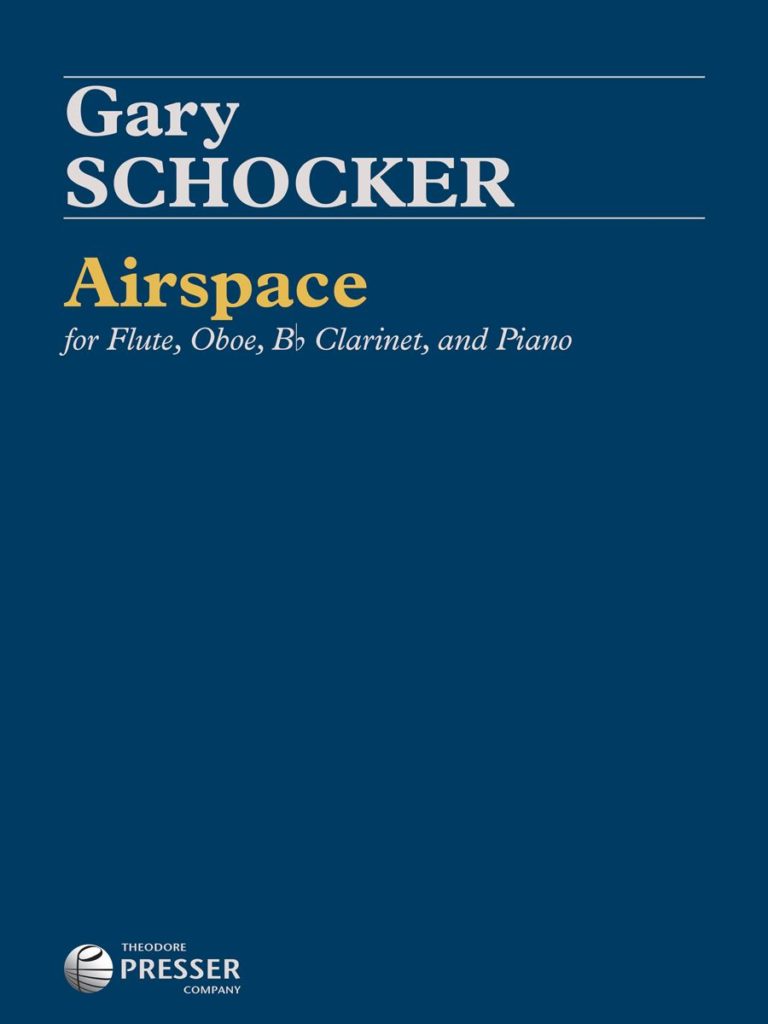
Publisher’s Note: Airspace is an 11-minute work commissioned by the Monmouth Winds, for whom Schocker’s Sextet for wind quintet and piano was also composed. Evoking four contrasting outdoor spaces (titled 1. Atrium, 2. Parterre, 3. Court Yard, 4. Barnyard), the music is in turn tender and brusque. With its persistent melodies, unexpected moods, and joyous virtuoso finale, Airspace is sure to become an audience favorite and valuable addition to the mixed-winds repertory.
Finalists
Alexandra Molnar-Suhajda: Fleurs d’automne for Two Flutes, Alto Flute, and Cello (Alry Publications)
Stephen Barr: Monuments of the West for Flute and Euphonium-Tuba Quartet (Alry Publications)
Honorable Mention
Tim Knight: East Coast Pictures for Woodwind Quartet (Forton Music)
Winner
David Baker: Wind Quintet (Forton Music)
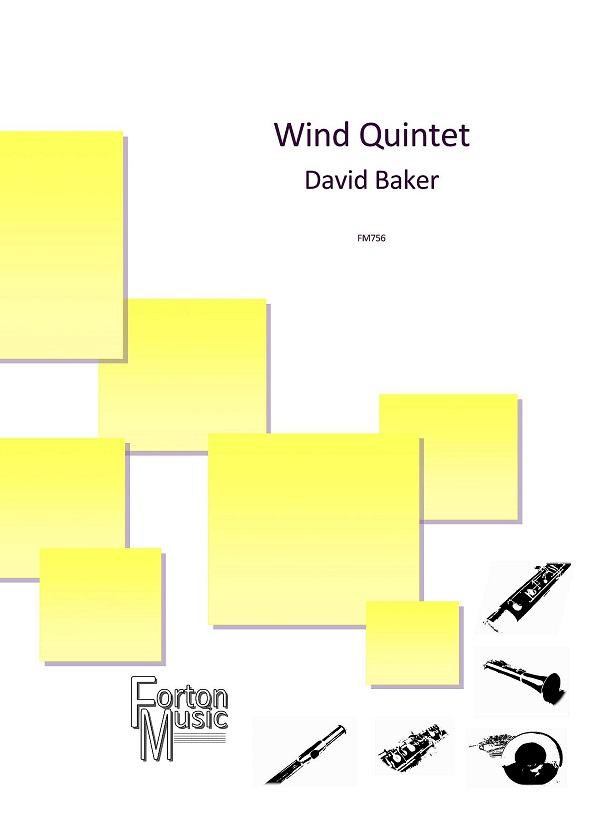
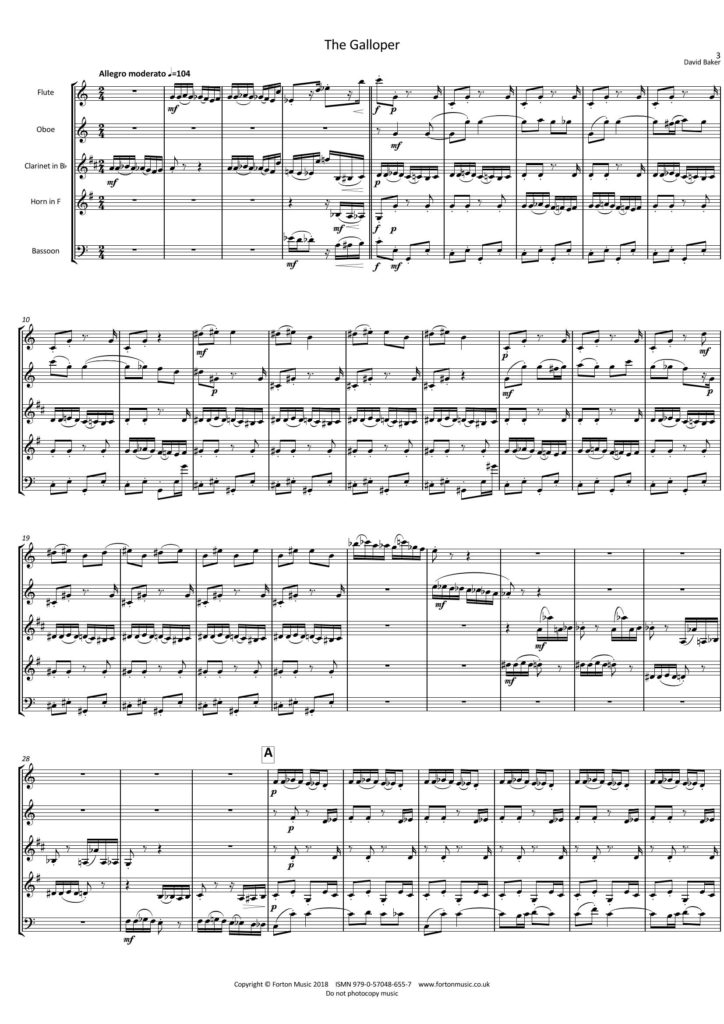
Editor’s Choice: This is a very attractive wind quintet. Unusually it tells a story: one of a country parson visiting a local fair where he encounters all manner of events. The ‘Galloper’ roundabout is followed by a Hurdy Gurdy, the music of both capturing their characters imaginatively. The Dance has a happy tune over a rhythmic accompaniment and, after a sombre begining, the Finale develops into an ebulliant dance before coming to a majestic close. This is a very well crafted piece of music which skillfully uses the colours of the instruments to enhance the narrative. It would make a great recital piece as well as being very useful in concerts for children.
Finalists
Jonty Hall Three Times Four for Woodwind Quartet (Forton Music)
Yuri Povolotsky: Oui, Mon Cher Fufu! (Forton Music)
Honorable Mentions
Roma Cafolla: Eyes (Forton Music)
Liz Sharma: Q The Music (Forton Music)
Low Flutes (Solo/Duo)
Winners
Nathan James Dearden: – We Are Determined for Bass Flute, Narrator, and Drone (Tetractys Publishing)
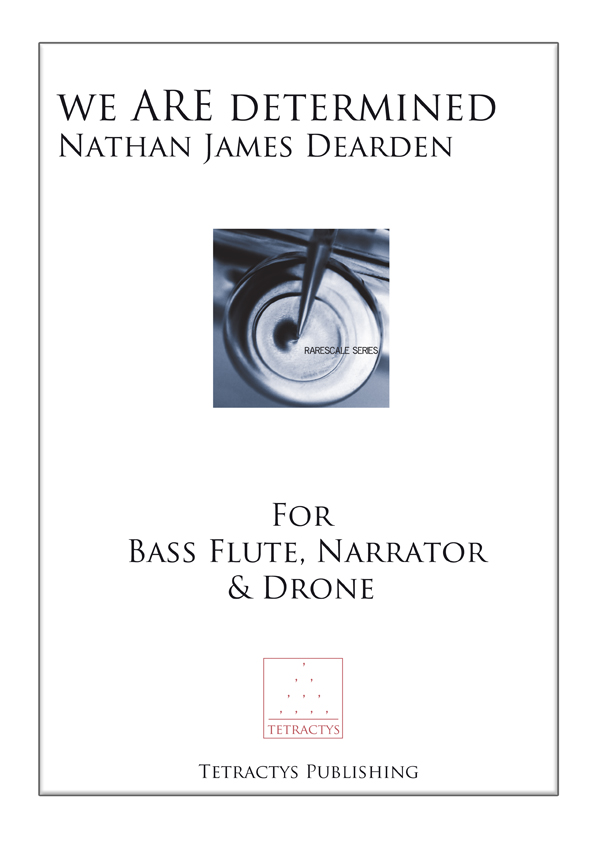
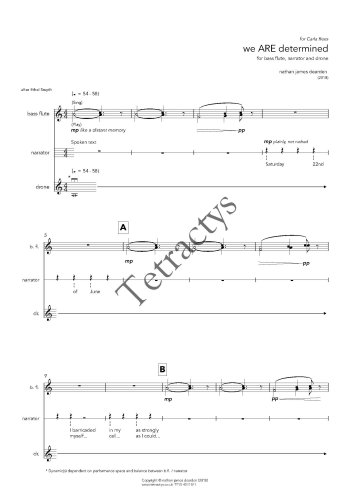
Publisher’s Note: Incorporating excerpts from Emily Wilding Davison’s diary during her incarceration at Holloway Prison (London, UK) in 1912, this work acts as a musical postcard from a single moment of one’s immoral persecution and a time of collective empowerment. Written for Suffrage 2018 Events and kindly supported by VOTE100 at Royal Holloway.
Nickos Harizanos: The Storyteller Op. 203 for Alto Flute (Tetractys Publishing)
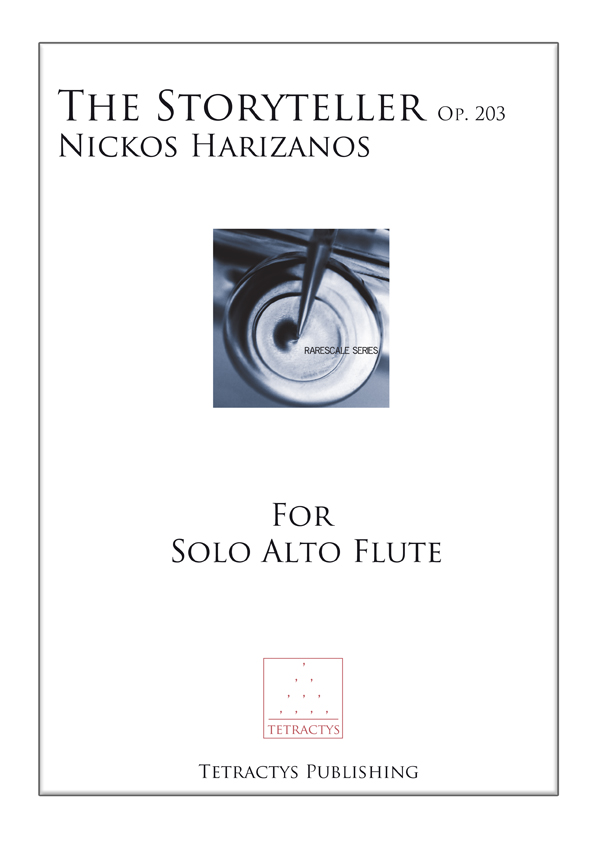
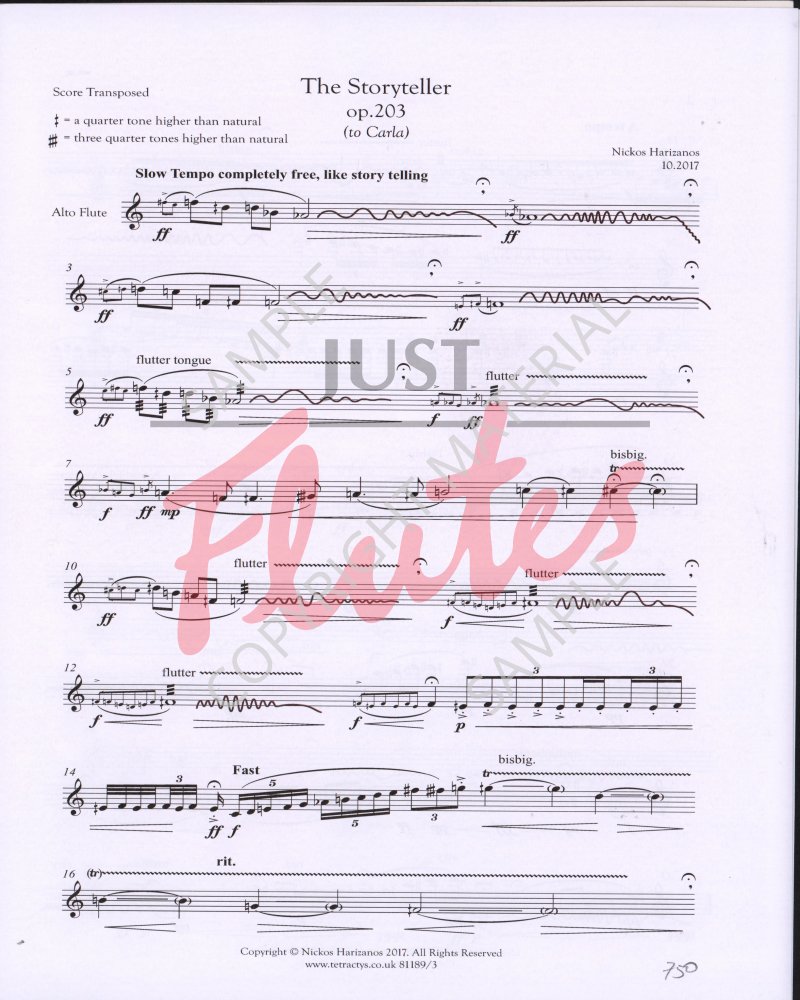
Editor’s Choice: If you are lucky enough to have an alto flute and are just starting to get to grips with contemporary music this effective work is a great place to start. It’s atmospheric, casting a spell over the listener with fluid low writing which is given space to breathe. Note bends and flutter-tonguing add to the textural mix. Pitched at just the right level to engage the intermediate level performer, this very lovely piece has something to offer almost everyone.
Honorable Mention
Jonathan Cohen: Patuxent Walk for Alto Flute and Guitar (Tetractys Publishing)
Low Flute Trios & Ensembles
Winners
Jonathan Cohen: Metropolitan Contrarians – Quartet for Contrabass Flutes (Tetractys Publishing)
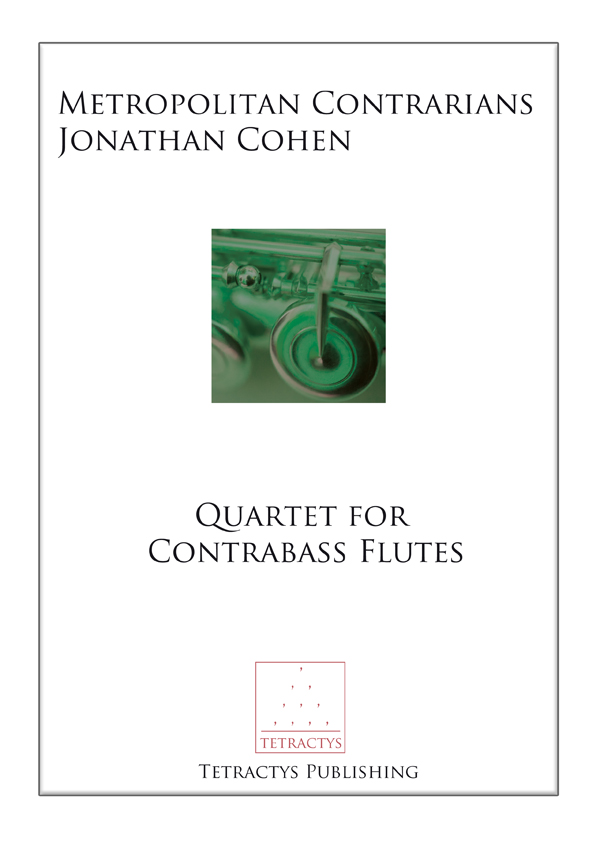
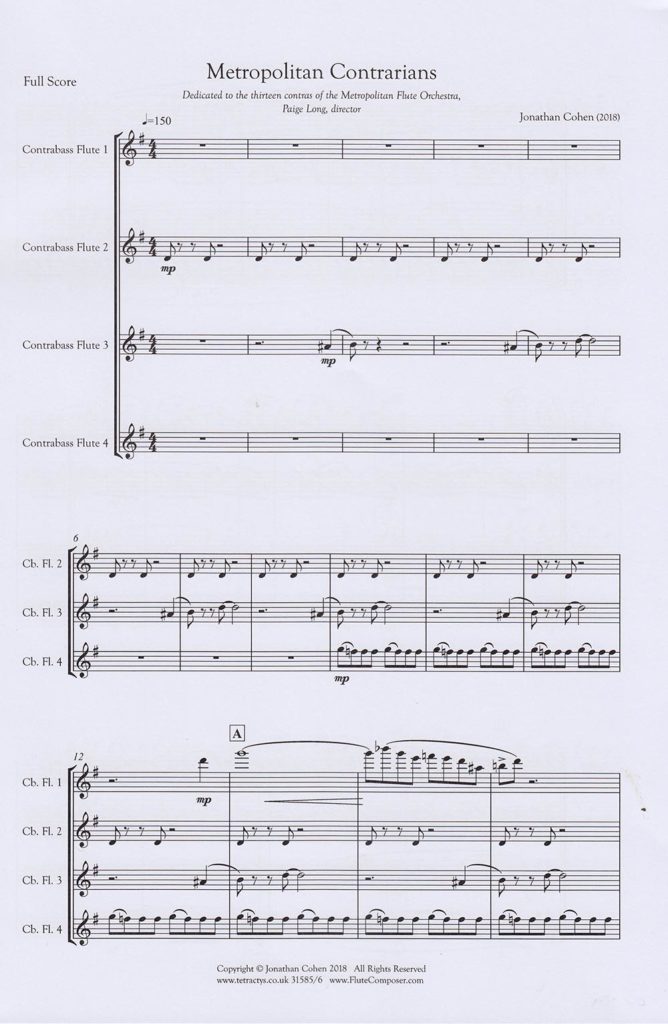
Publisher’s Note: This quartet shows off three lovely octaves of the contra with a jazzy infectious groove. In addition to tutti playing, each part has its moment in sun with the others backing. Show your audience why low flutes are cool. While written with contras in mind, is suitable for four equal-key instruments.
Jonathan Cohen: Tango Molto Basso (Tetractys Publishing)
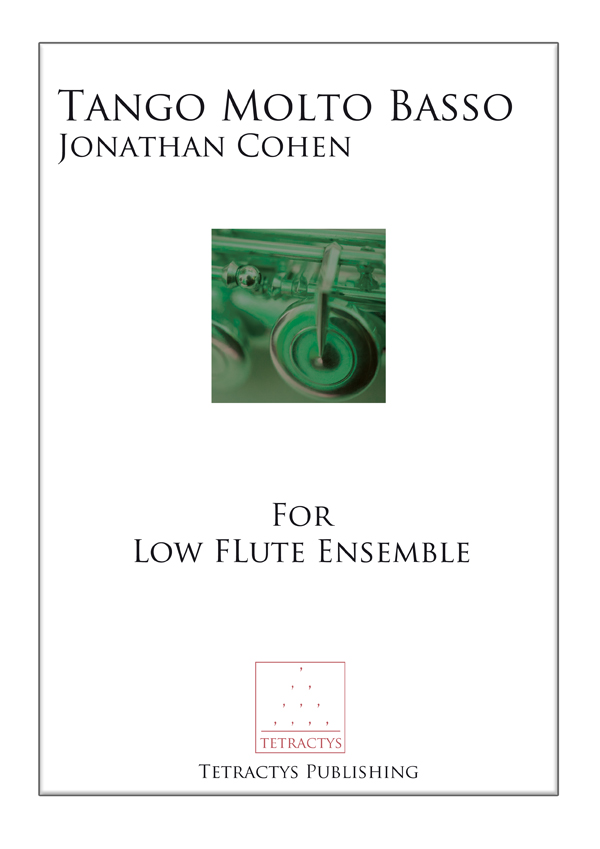
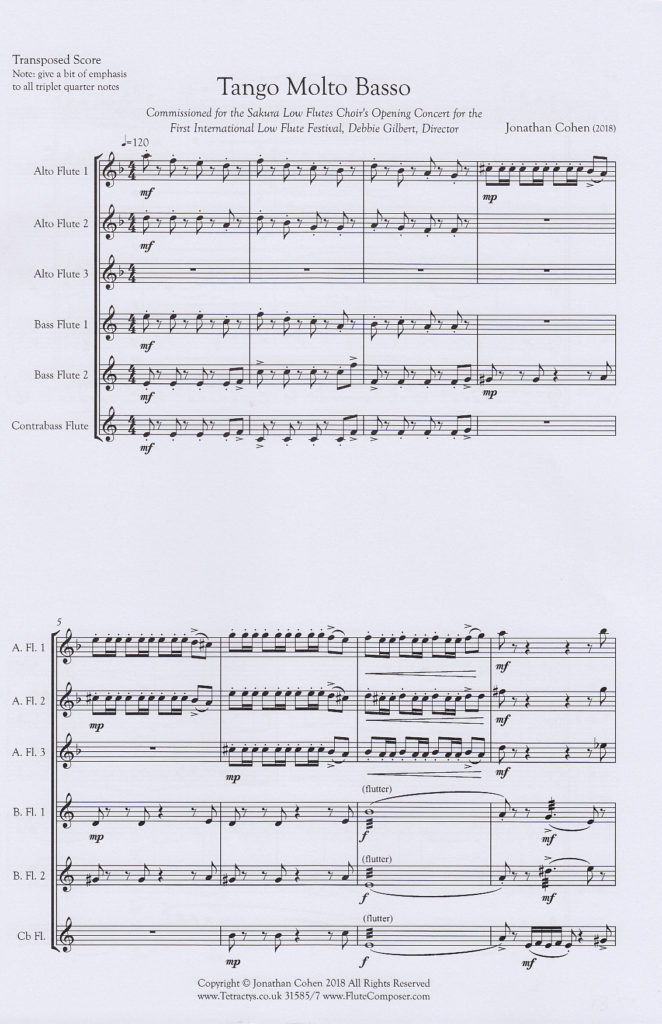
Publisher’s Note: The low flutes are well suited to the tango’s balance of fire and passion on one side and restraint and subtlety on the other. All three octaves of the flutes’ range are used to advantage as they move between sharp staccato, fluttering, and sweeping legato triplets, building to a contra cadenza in the middle, then a quiet playful period, and then to an impassioned finish. Light a fire in your audience with Tango Molto Basso.
Finalist
Alexandra Molnar-Suhajda: Owl Prowl (Alry Publications)
Honorable Mention
Jonathan Cohen: Ali’s Stowaway (Tetractys Publishing)
Flute & Electronics
Winner
Liljia Maria Asmundsdottir: And Burn Like the Bird into Eternity (Tetractys Publishing)
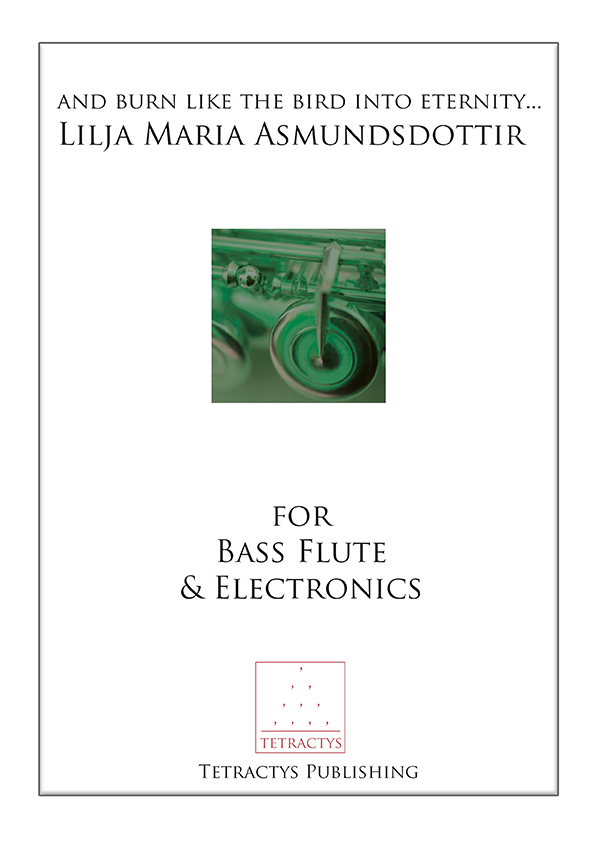
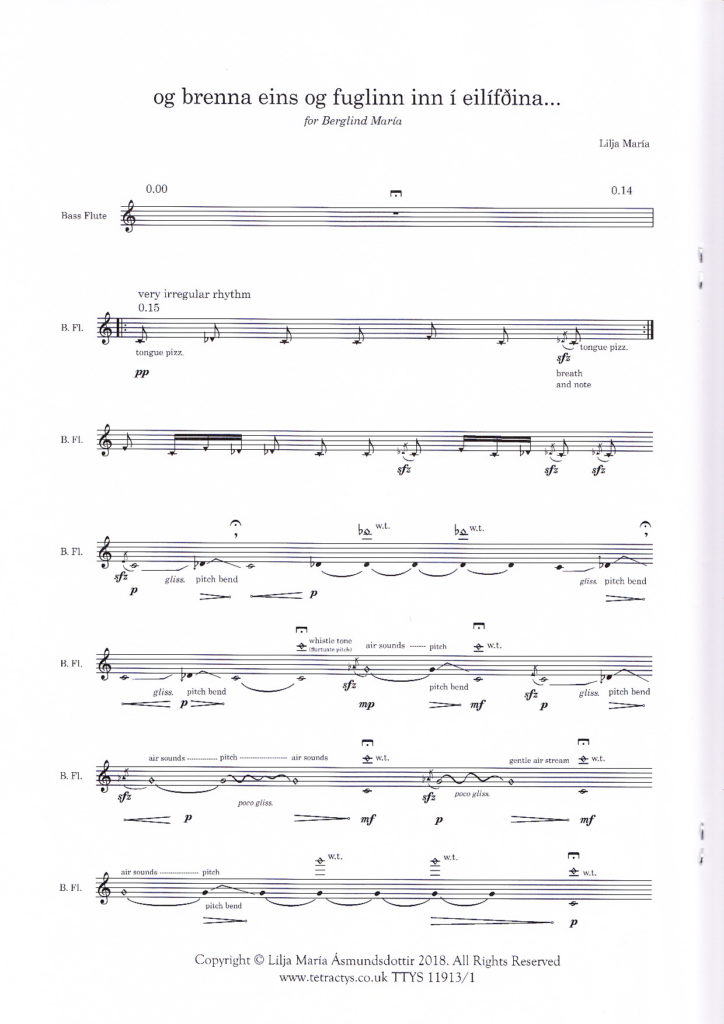
Publisher’s Note: The piece og brenna eins og fuglinn inn í eilífðina… was written in the Spring 2018 for Berglind María Tómasdóttir. It is based on a poem from the composer’s dream. The poem reflects the loss of someone dear to the narrator and how the transformation of the internal world of a human can evolve from sorrow, fear and loss to complete tranquility. The underlying theme is how certain words and certain sounds have the ability to transform the state of the human mind. The intimate sounds of the voice, breathing, whistle tones and words create a dreamlike state of being where not everything makes sense. The flutist and the electronics sculpt an abstract narrative, reflective of the atmosphere present in the dream.
Finalist
Michael Cryne: In Cloud Light for Alto Flute and Electronics (Tetractys Publishing)
Honorable Mention
Filipe Lopes: Variações sobre Espaço #4 for Flute and Wallace (Scherzo Editions)
Solo Flute
Winner
Micah Hayes: I’m Not Connected to Anything (Alry Publications)
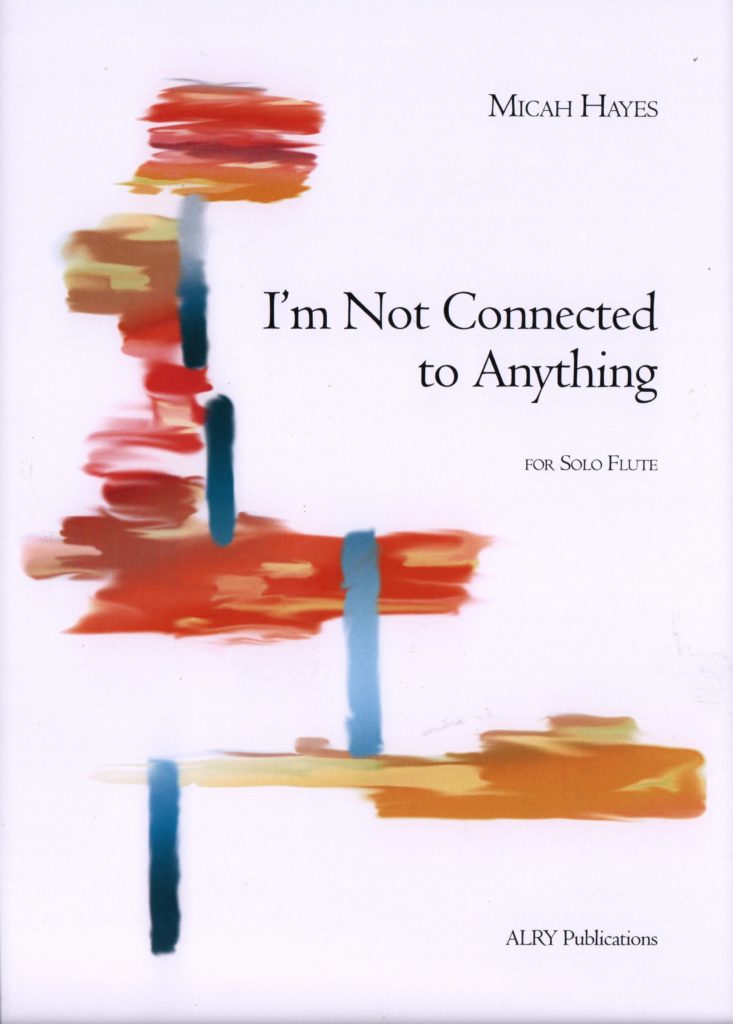
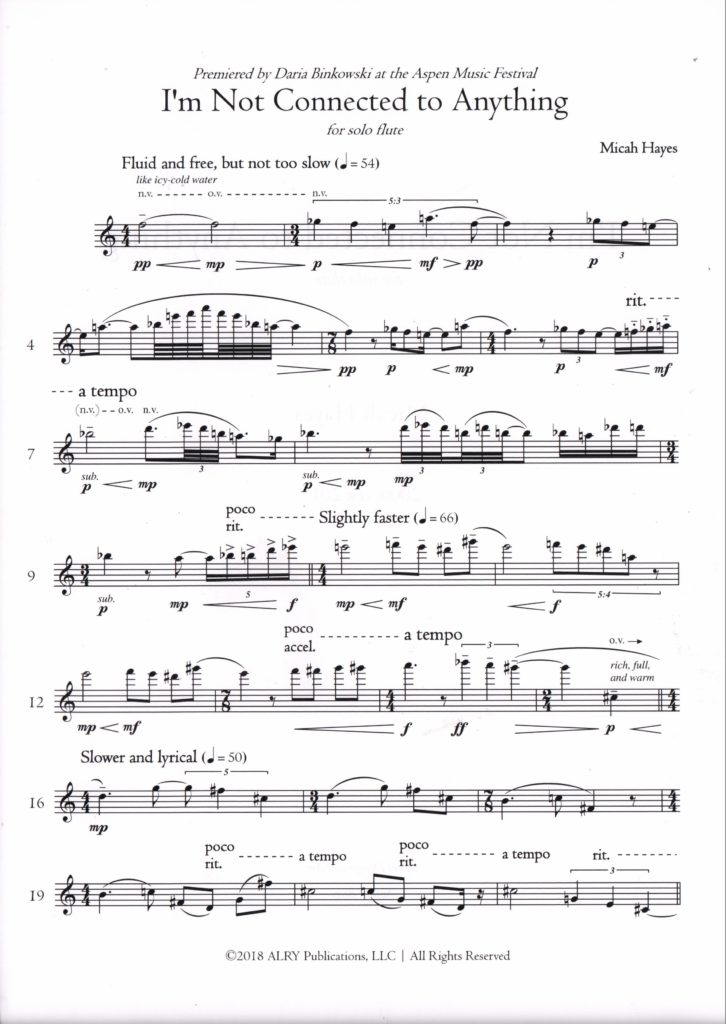
Publisher’s Note: “I’m Not Connected to Anything” for Solo Flute by Micah Hayes was premiered by Daria Binkowski at the Aspen Music Festival. From the composer, the piece “uses snaky chromatic melodies to evoke a sense of melancholy and loss. Changes in vibrato and tone color are used to create a haunting atmosphere.”
Alfredo del Monaco: Chants for Unaccompanied Flute (Cayambis Music Press)
August Verbesselt: Drie Monologen (Metropolis Music Publishers)
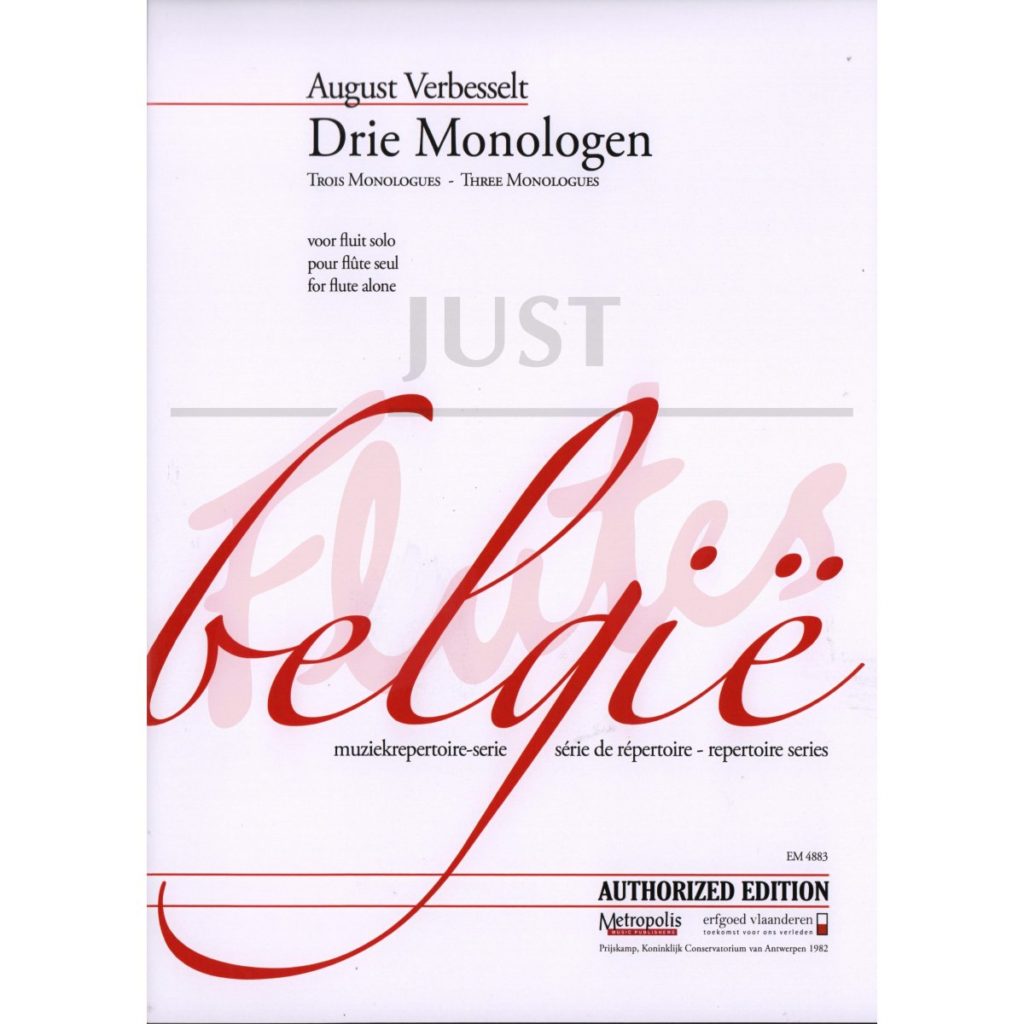
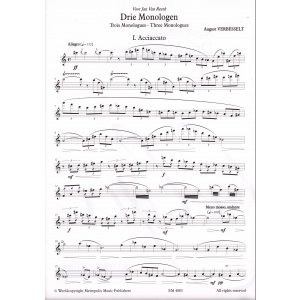
Publisher’s Note: August Verbesselt’s Three Monologues for flute alone, like much of his music, lies somewhere in between Bartók and Muczynski. His experimentations with dodecaphony and atonality, like Bartók, were directed towards making strange and different types of music appealing – and Verbesselt was intent on making music that was comprehensible to audiences. The deeper influences of Bartók can be heard clearly in the recitativ and night music of the second Monologue, written in near-free time. The first and third Monologues, however, hold more resemblance to Muczynski’s Three Preludes – more aggressive, more Flemish, but with a rhythmic vitality that transforms less traditional ideas into intriguing, appealing patterns and dances. The high level of playing required also matches Muczynski’s Preludes, and allows the Monologues to easily hold their own in recital or competition.
Finalists
Catarina Bispo: Reencontros num jardim efémero (Scherzo Editions)
Daniel Cueto: Tuhuayo for Unaccompanied Flute (Cayambis Music Press)
Alex Ford: Pan for Solo Flute (Alry Publications)
Honorable Mention
Howard J. Buss: Anne of the Waves (Brixton Publications)
Allen Molineux: JALS (just a little something) (Brixton Publications)
Two Flutes & Piano
Winner
Jean-Marie LeClair, arranged by Elizabeth Walker: Chaconne (Alry Publications)
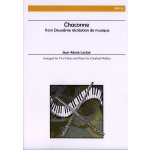
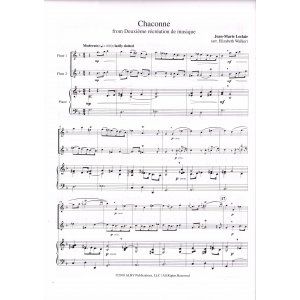
Publisher’s Note: This ‘Chaconne’ by Jean-Marie Leclair is taken from his ‘Deuxième récréation de musique’, opus 8, originally composed for two flutes or two violins, and basso continuo. It is a long, involved movement lasting approximately 8 minutes; with contrasting major and minor sections, multiple rhythmical, rhetoric and emotional changes. The piece shows influences of flamboyant artistry seen in Italian baroque pieces, but also the formal structures of the French dance form. Elizabeth has added phrasings, articulations and written out some of the French baroque ornaments to aid a historically informed, stylistic interpretation on modern flutes.
Finalists
William McGibbon, arranged by Elizabeth C. Ford: Complete Sonatas (A-R Editions, Inc)
Eugene Magalif: Gentle Prince (Forton Music)
Honorable Mention
Russel Scarbrough Silver Strand (Falls House Press)
Piccolo
Winner
Georg Philipp Telemann, arranged by Zart Dombourian-Eby and Valerie Shields: Concerto in E Minor for Piccolo, Flute, and Piano in E minor (Theodore Presser Company)
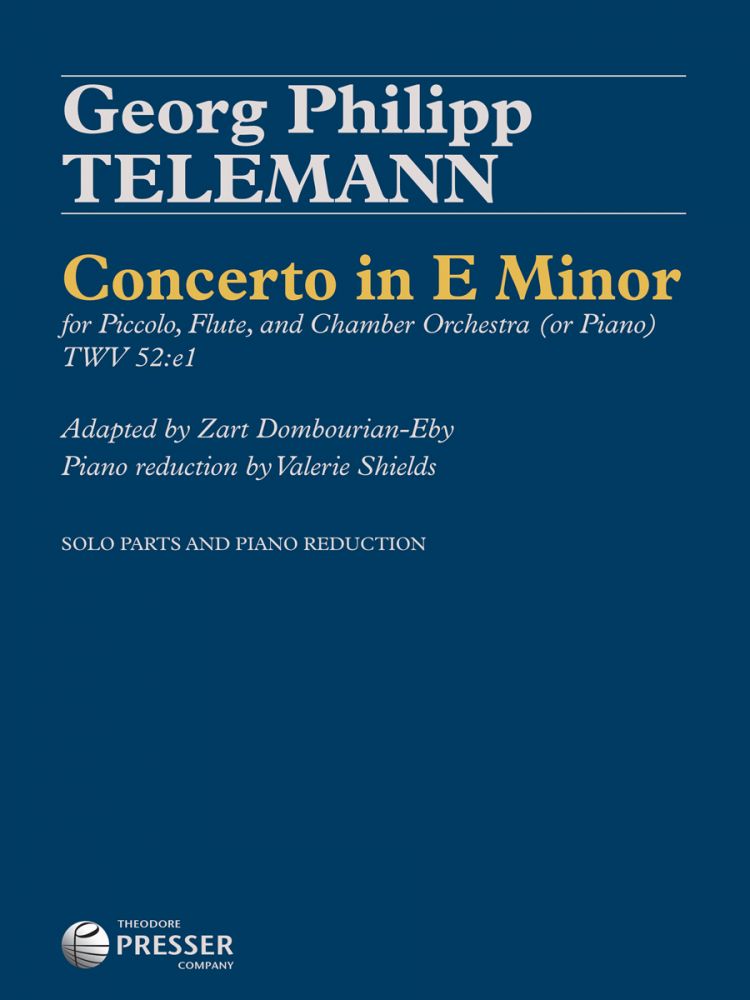
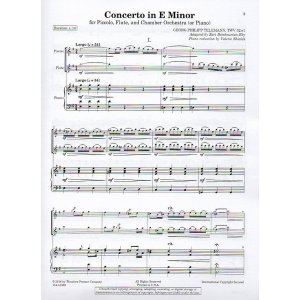
Publisher’s Note: Composed by Telemann as a double concerto for recorder and transverse flute, Zart Dombourian-Eby’s new ediion is prepared for piccolo, flute and piano – remaining compatible with available orchestral editions, and respectfully faithful to Telemann’s detailed nuances. Cast in the slow-fast, slow-fast four-movement mould typical of Baroque concert works, the CONCERTO IN E MINOR is at once among the most beautiful and exhilarating works of Telemann’s formidable output
Finalists
Gary Schocker: Sonata No. 3 (Theodore Presser Company)
Nicole Chamberlain: La Charmeur for Piccolo, Piano, and Silent Film (Spotted Rocket)
Honorable Mention
Nicole Chamberlain: Death Whistle for Solo Piccolo (Spotted Rocket)
Flute Trios
Winners
Jonathan Cohen: One Ann Arbor Morn (Falls House Press)
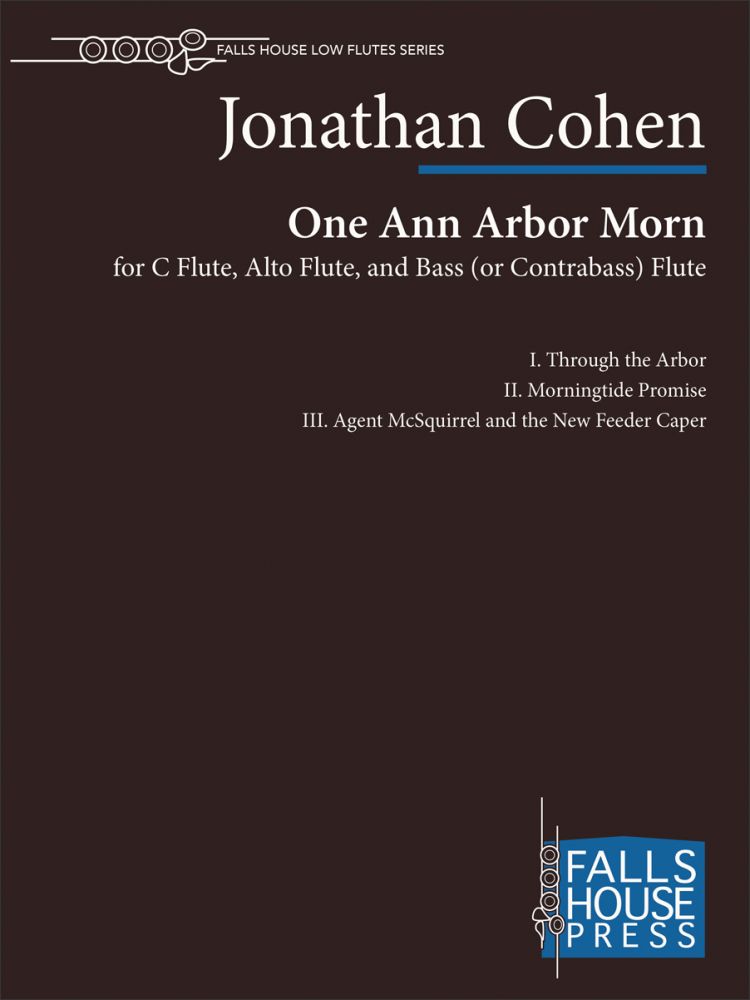
Publisher’s Note: One Ann Arbor Morn is a quaintly touching suite of scenes from the composer’s childhood, scored for the rich and rare trio instrumentation of C Flute, Alto Flute, and Bass (or Contrabass). I. Through the Arbor is a bucolic recollection of trees, parks, and rivers. II. Morningtide Promise begins with an Alto solo; it is a sunny weekend when life was simple. III. Agent McSquirrel and the New Feeder Caper is not only the scherzo suggested by its playful title, but a steamy flute trio tinged with the film noir jazz suggesting detectives investigating the latest burglary caper.
John La Montaine: Trio Sonata (Fredonia Press)
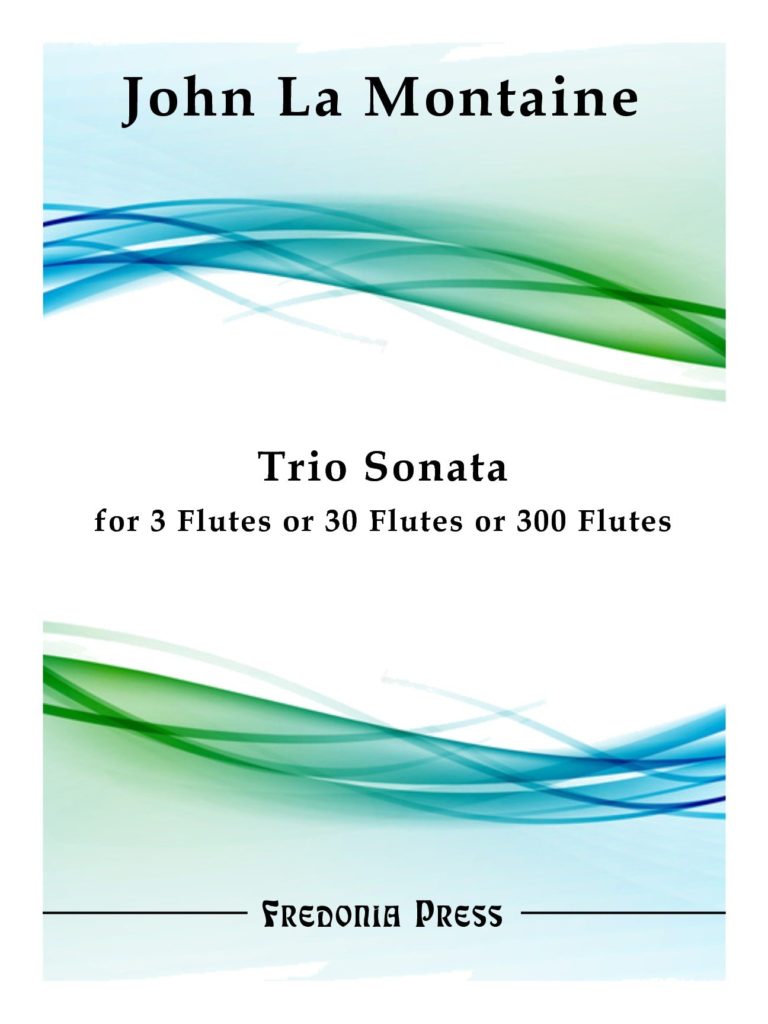
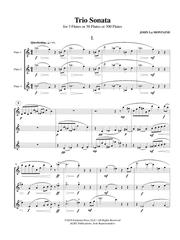
Publisher’s Note: Prior to 2018, the Trio Sonata of John La Montaine might as well have not existed. When ALRY Publications became the sole representative for Fredonia Press, this work was not mentioned in the catalogs, nor was any score or manuscript included in the Fredonia archives. Suddenly it resurfaced, a paper copy, bearing a handwritten inscription to Doriot Anthony Dwyer, with the subtitle “for 3 Flutes or 30 Flutes or 300 Flutes.” The new and freshly re-engraved edition, featuring a full score and parts, consists of three movements: Questioning (a trio version of the opening movement of his Sonata for Solo Flute), Song and Scherzo.
Finalists
Judy Nishimura: Dance Suite (AlryPublications)
Karol Beffa: De Cartes et D’Estampes (Gérard Billaudot)
Honorable Mention
Traditional, arranged by A. Cooper: Theme and Variations on ‘Early One Morning’ (Wonderful Winds
Flute Quintets
Winner
Liz Sharma: Flute Fanfare (Forton Music)
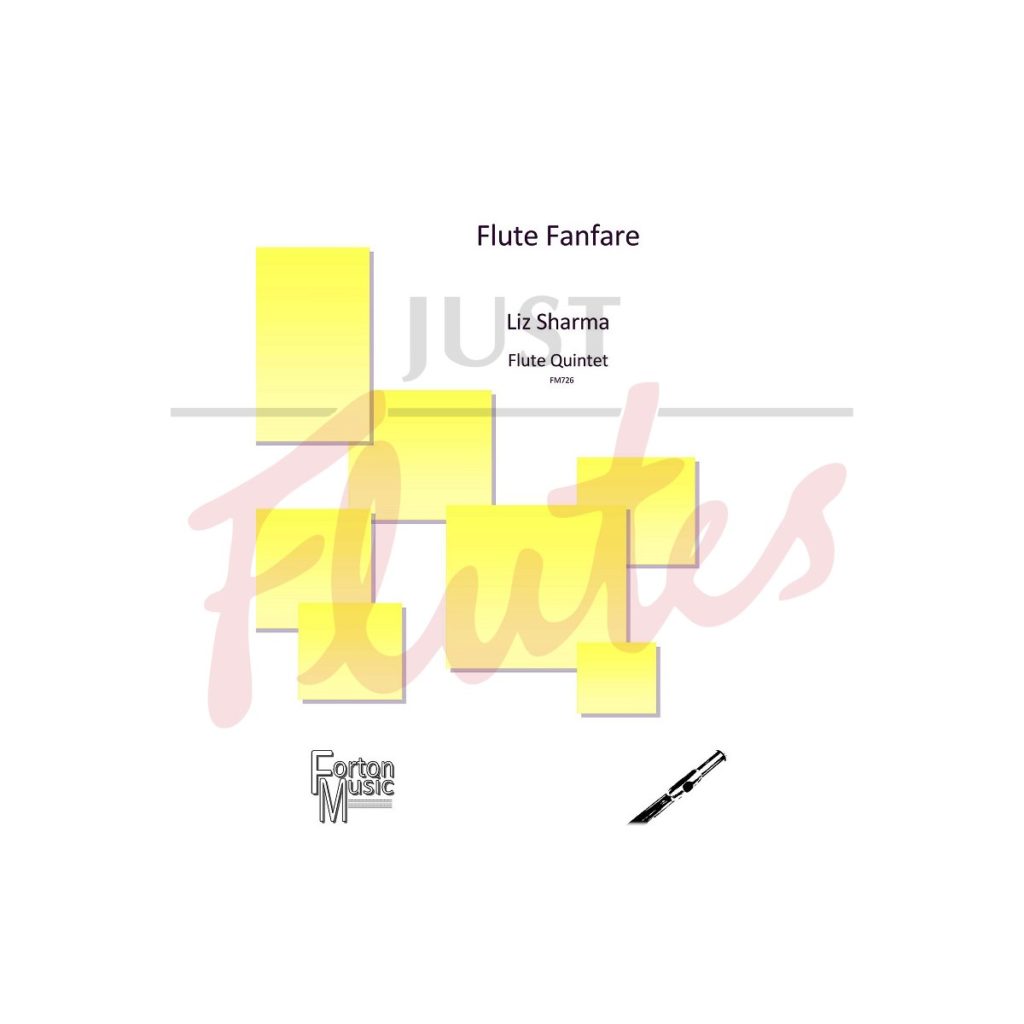
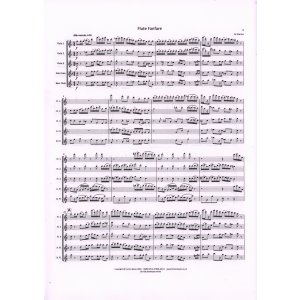
Editor’s Choice: This mix of a traditional fanfare and blues harmonies really does pack an aural punch in a very short space of time. From a practical point of view the parts are relatively straightforward at the fanfare speed, so it is the independence between them that creates the overall effect. The end result is a piece full of character – you”ll love it!
Finalist
Wil Offermans: Forbidden Valley (Musikverlag Zimmerman)
Honorable Mention
Flute Quartet
Winner
Charles DeLaney: Night Thoughts (Alry Publications)
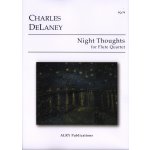
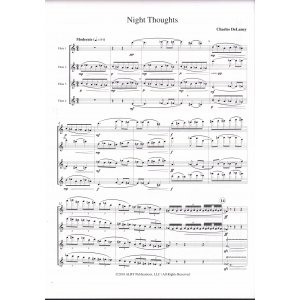
Publisher’s Note: Night Thoughts is an original work for four C flutes, composed by Charles DeLaney in 1988. Reminiscent of the Elegie (flute quartet) of Joseph Jongen, the chromaticism and close harmonies help to create an other-worldly, haunting mood.
Finalists
Roger Derongé: Klezmorim (Digital Music Print)
Maurice Ravel, arranged by Robert Rainford: Quartet (Forton Music)
Peter Senchuk: Jazz Suite for Flute Quartet (Forest Glade)
Honorable Mentions
Claude Debussy, arranged by Robert Rainford: Quartet (Forton Music)
Daniel Dorff: Musetta Steps Out (Theodore Presser Company)
Traditional, arranged by M. Oriss: Four Irish Tunes (Wonderful Winds)

